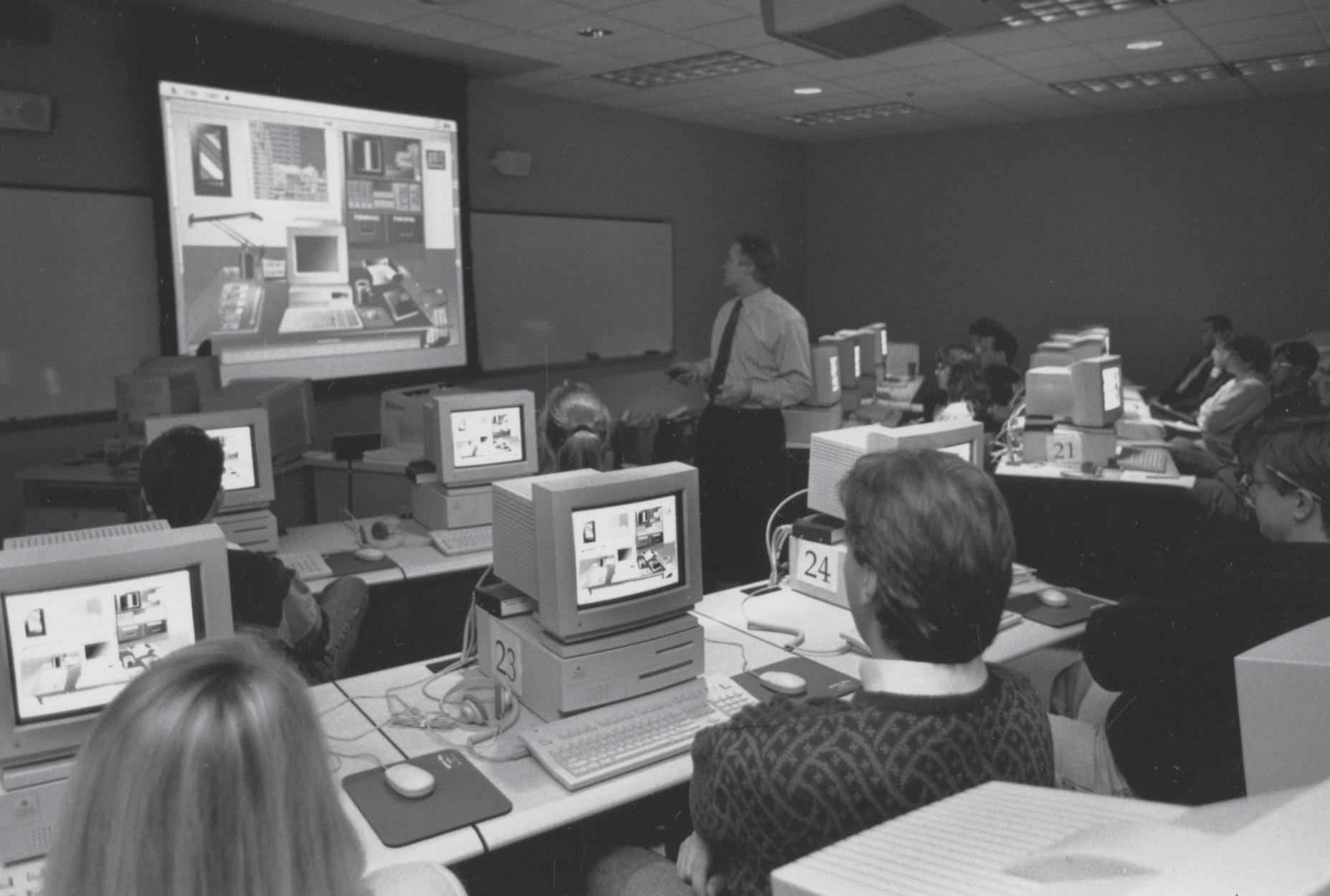Business Badgers lead marketing efforts at ALDI

SPRING | SUMMER 2025
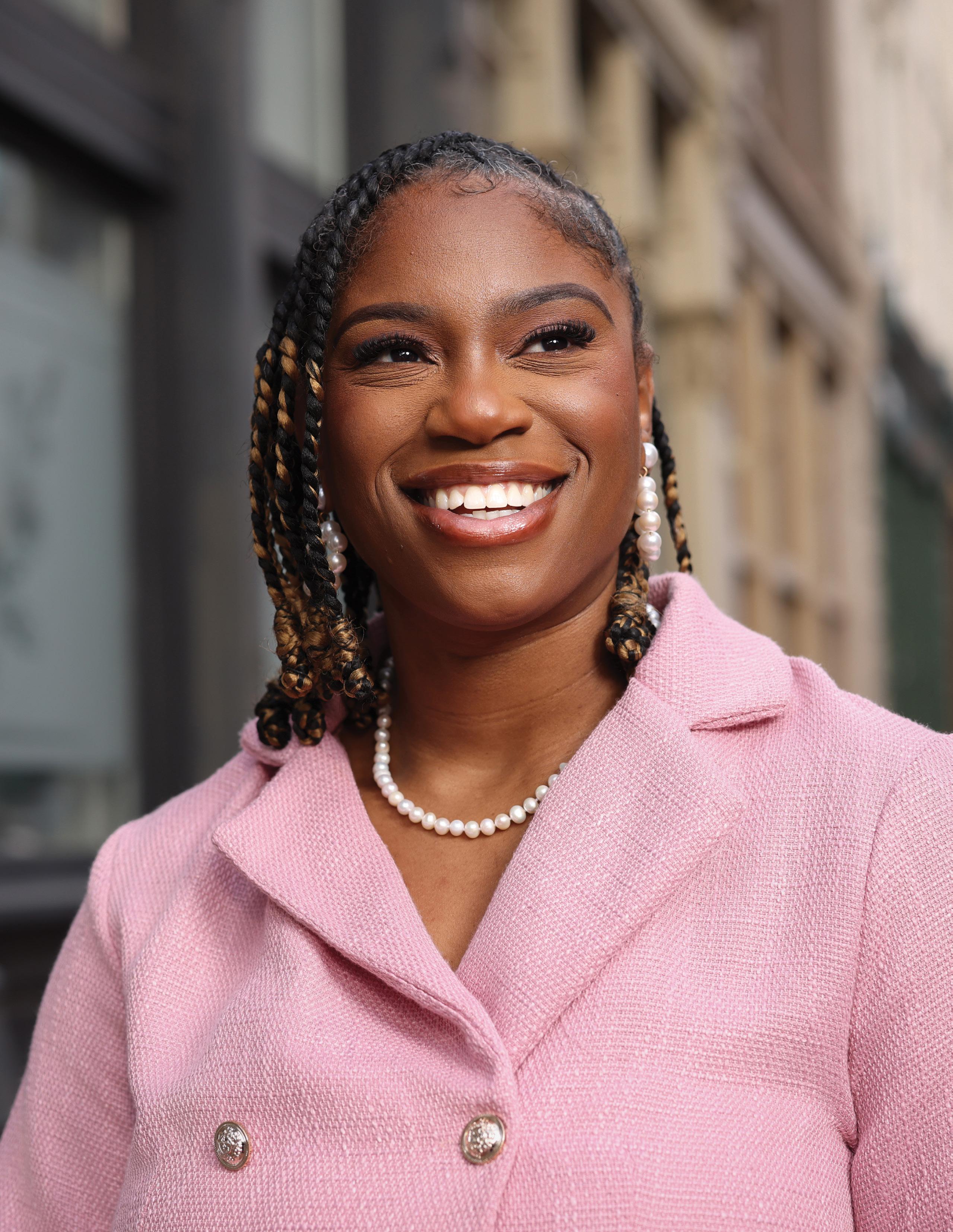
IN THIS ISSUE
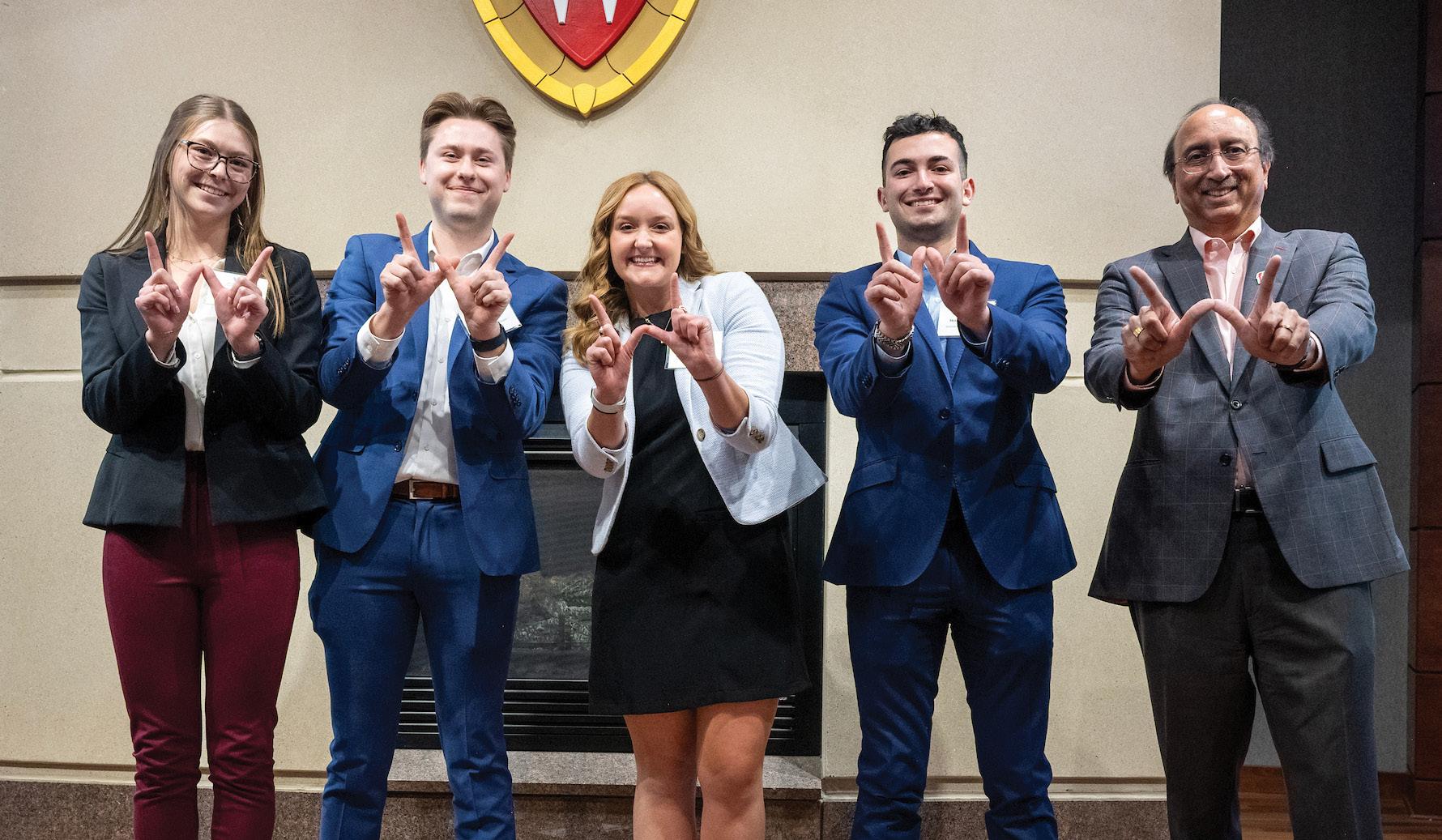

Business Badgers lead marketing efforts at ALDI

SPRING | SUMMER 2025


The Wisconsin School of Business strives to be a premier destination for business innovation and impact. To that end, we seek to redefine our partnership with industry—from small startups to Fortune 500 companies—as a co-creator of future talent and innovation.
Leveraging the power of our thriving alumni network and leaning into our strengths in entrepreneurship, innovation, and digital strategy, WSB is piloting new initiatives to bring real business challenges directly into our classrooms.
This partnership model is a true differentiator for WSB, allowing us to work toward an ambitious goal of embedding experiential learning into every student’s journey. Through these mutually beneficial partnerships, companies can tap into student perspectives for fresh insights on business challenges and have direct access to a pipeline of workplace-ready talent.
That ready and willing talent has always been a hallmark of the WSB way, and it’s showcased throughout the stories in this issue. You’ll read about a Business Badger
duo leading marketing efforts at ALDI (p. 06), and hear about the growing number of WSB students from across the globe who are becoming highly desired analytics experts through a unique online degree program (p. 26). You’ll also see plenty of talent on display throughout this year’s 8 to Watch feature (p. 16).
It is always exciting to see the many different forms that talent and innovation can take in serving industry and enhancing the reputation of WSB. I look forward to unlocking even more potential as our corporate partnerships grow and blossom across the country—and the globe.
On, Wisconsin!

Vallabh “Samba” Sambamurthy Albert O. Nicholas Dean Wisconsin School of Business
by
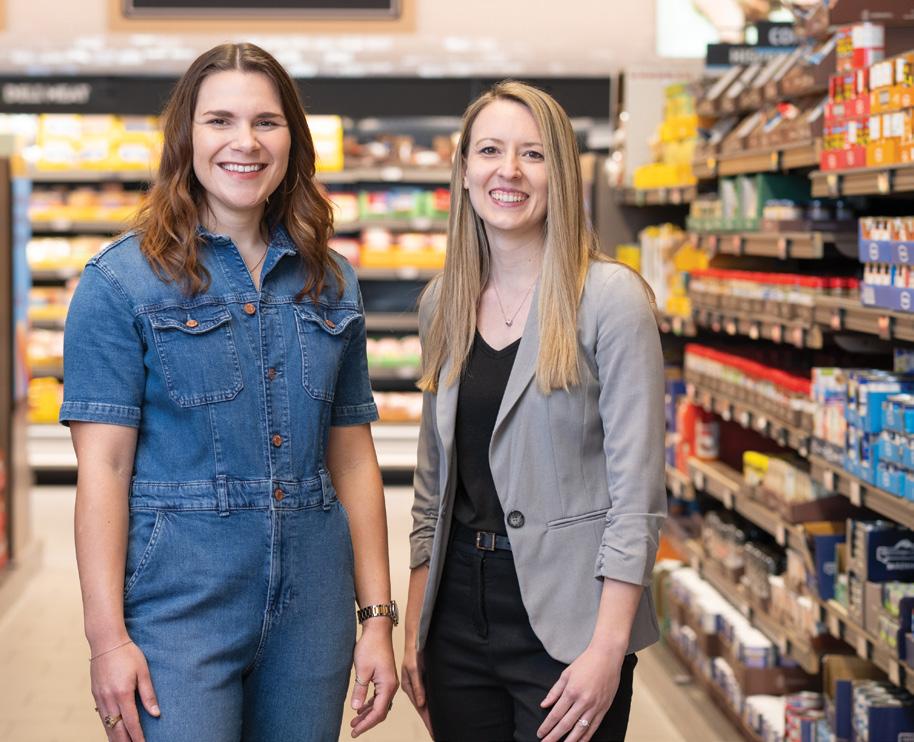
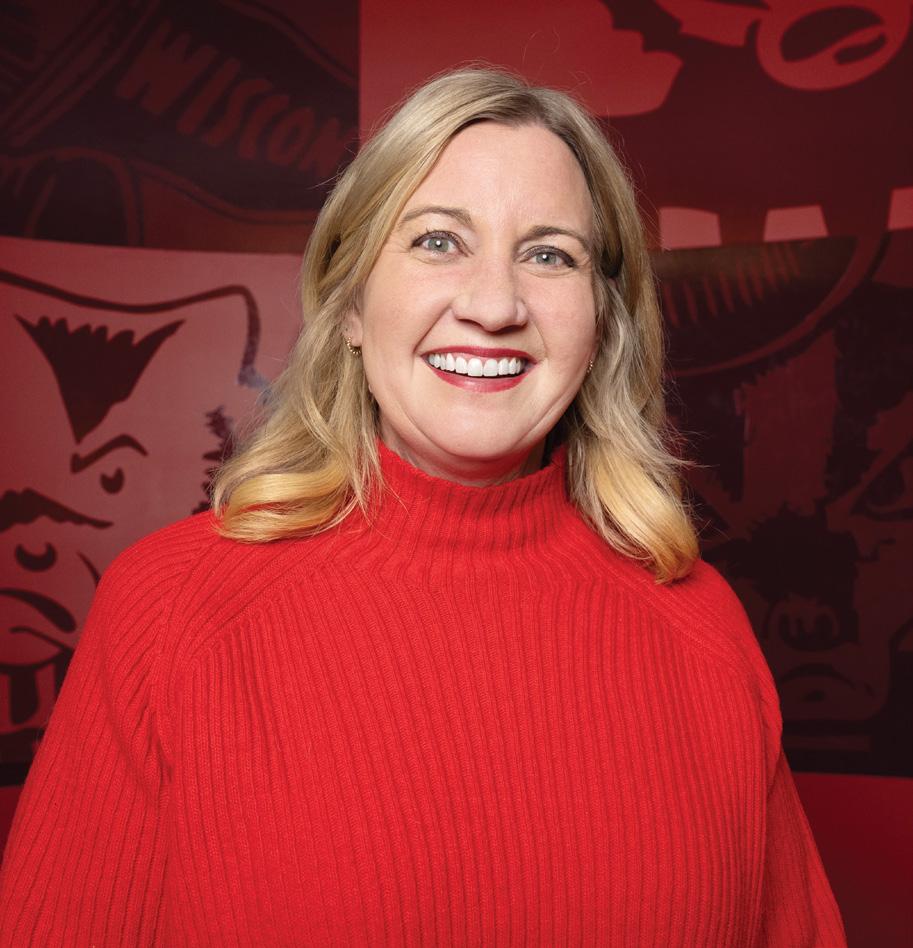


The Wisconsin School of Business is celebrating its 125th anniversary in 2025. While business education has changed quite a bit since the school’s founding, some fundamentals continue to withstand the test of time.
Looking back to the year 1900, here’s what business students enrolled at the School of Commerce—WSB’s original name—would find on their course schedule:
Industrial History of England
The History of Commerce
Banking and the Mechanism of Exchange
Business Organization and Management
Fast forward to 2025, and WSB students are still mastering foundational business concepts like finance and management, but they’re also exploring emerging fields—like sustainability and artificial intelligence—that are shaping the future of business:
Financial Markets, Institutions and Economic Activity
Machine Learning for Business Analytics
Intercultural Communication in Business Challenges & Solutions in Business Sustainability
The 125th anniversary celebration officially kicks off this fall. Watch for ways to get involved across all WSB channels!
SPRING | SUMMER 2025
|
EDITORIAL |
MANAGING EDITOR
Erin Canty Ryan (BA ’07, MS ’09)
ASSISTANT EDITOR AND WRITER
Chris Malina WRITER
Haley Boyer (BA ’20)
| DESIGN & PHOTOGRAPHY |
ART DIRECTOR AND DESIGNER
Shaysa Sidebottom Cook
DESIGN INTERN
Cam Erhardt (BFA ’26)
PHOTOGRAPHERS
Nick Burchell
Jessica Ebelhar
Paul L. Newby II
Mary Rafferty
Lexi Webster Boris Zharkov
| ADVISORS |
DIRECTOR OF ALUMNI RELATIONS
Betsy Lundgren (BA ’03, MA ’05)
EDITORIAL
Kaylene Christnovich
Sirinda Pairin (BA ’15)
Binnu Palta Hill (BA ’97)
BRAND
Katie Schauer
© 2025 Board of Regents of the Universities of Wisconsin
Update is published biannually. All rights reserved.
PUBLISHER
Wisconsin School of Business Grainger Hall 975 University Avenue Madison, WI 53706
business.wisc.edu/update
University of Wisconsin–Madison is an equal opportunity and affirmative action educator and employer.
Cover photo by Jessica Ebelhar
Belle Lin (BBA ’13) REPORTER
THE WALL STREET JOURNAL NEW YORK

What type of reporting do you do?
I cover enterprise technology and write about how large businesses use tech, and the big technology companies—including AI companies—that sell to them. I entered this line of business reporting at a really fortuitous time. One week is completely different from the next, which makes things exciting and challenging.
How did studying business elevate your reporting?
My degree provides a solid foundation for reading a balance sheet or analyzing and understanding a marketing plan. Pricing, product, and promotion are key parts of what every corporation does, so having that knowledge gives me an edge when doing business and financial reporting.
Oh, and a few more things:
What’s your favorite WSB memory?
Getting involved in b.Line, WSB’s undergraduate student magazine, was a fun way to engage with the student body while dabbling in journalism. I also cofounded Madison Business Mentoring, since I wanted to do something focused on connecting the school with the great alumni network that we have both in Madison and beyond.
Lin previously worked at tech companies, including Dropbox. | First newspaper gig: The Badger Herald. | A double major, Lin studied marketing and management at WSB. | Technology she’s watching: AI agents that perform tasks for users, like ordering groceries. | Best part of being a reporter: “You get to do a job that people write movies about.”
To read more, visit business.wisc.edu/news
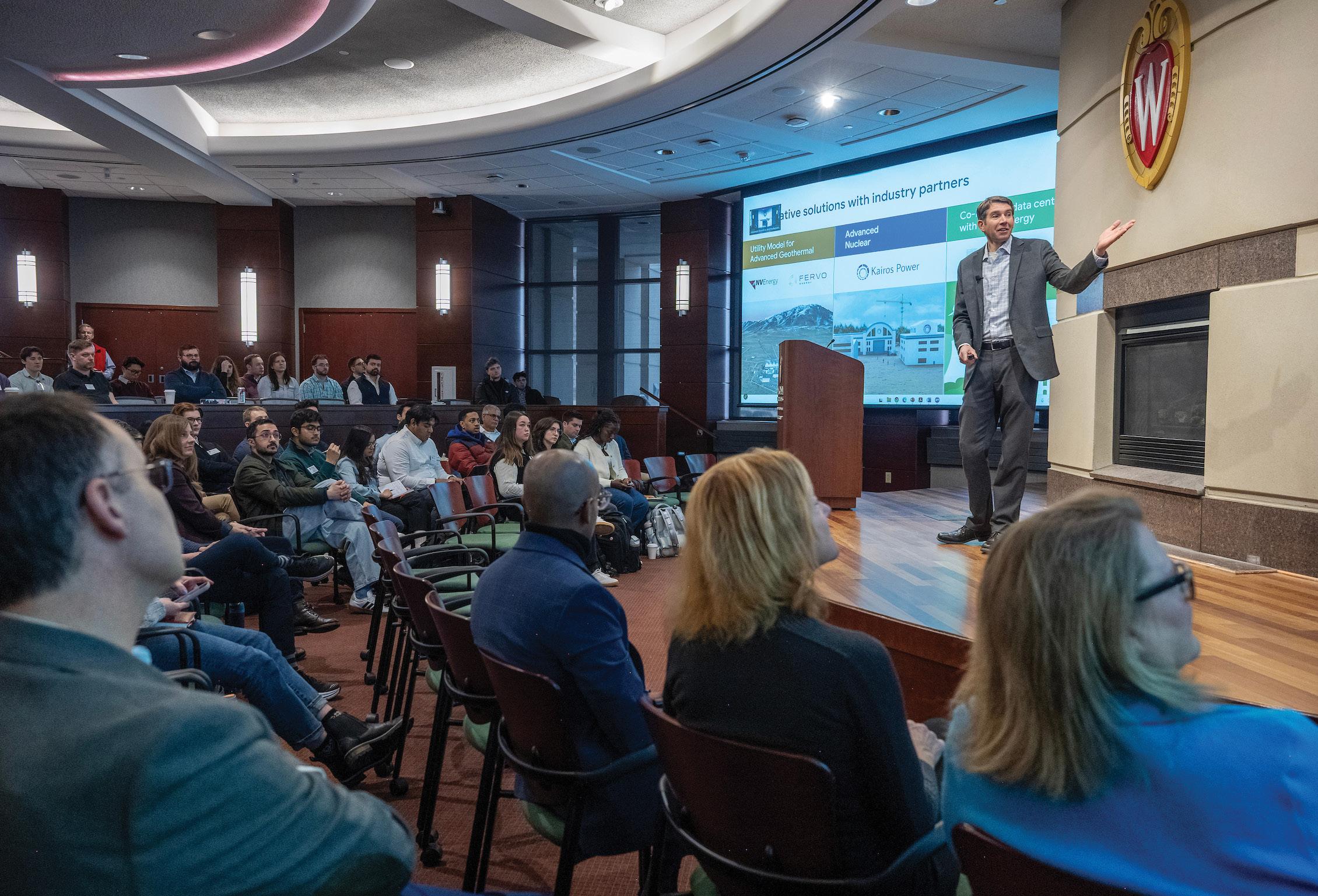
In February, WSB graduate students, faculty, and staff participated in AI Day, an event highlighting AI’s broad impact and applications across industries. During the event, industry leaders, alumni, and faculty shared how AI is transforming everything from health care delivery to the fan experience at big league baseball games.
WSB continues to make investments in the rapidly growing field of artificial intelligence. Matt Seitz, a 13-year Google veteran, was named director of the school’s new AI Hub for Business. The hub’s mission is to help WSB navigate and lead this technological shift by offering AI expertise, spearheading projects and events to accelerate AI adoption, and collaborating with industry partners on cutting-edge innovation.
The school is also
embracing AI across its teaching and learning— and encouraging students to experiment in the classroom. “You will not find AI tools being forbidden in very many classes at the business school,” says Katie Gaertner, a business analytics lecturer at WSB.
“We understand that this is a transformative opportunity, and our students need to be familiar with this technology and they need to have encountered it before they enter the workforce.”
Alumni, parents, and friends came together on April 8–9 to support the Wisconsin School of Business on Day of the Badger, UW–Madison’s annual giving tradition.
Number of donors who made gifts to WSB during the two-day event
Amount of the generous gifts and matches from two anonymous donors
Total amount raised to support experiential learning opportunities, like job shadows and case competitions, at WSB
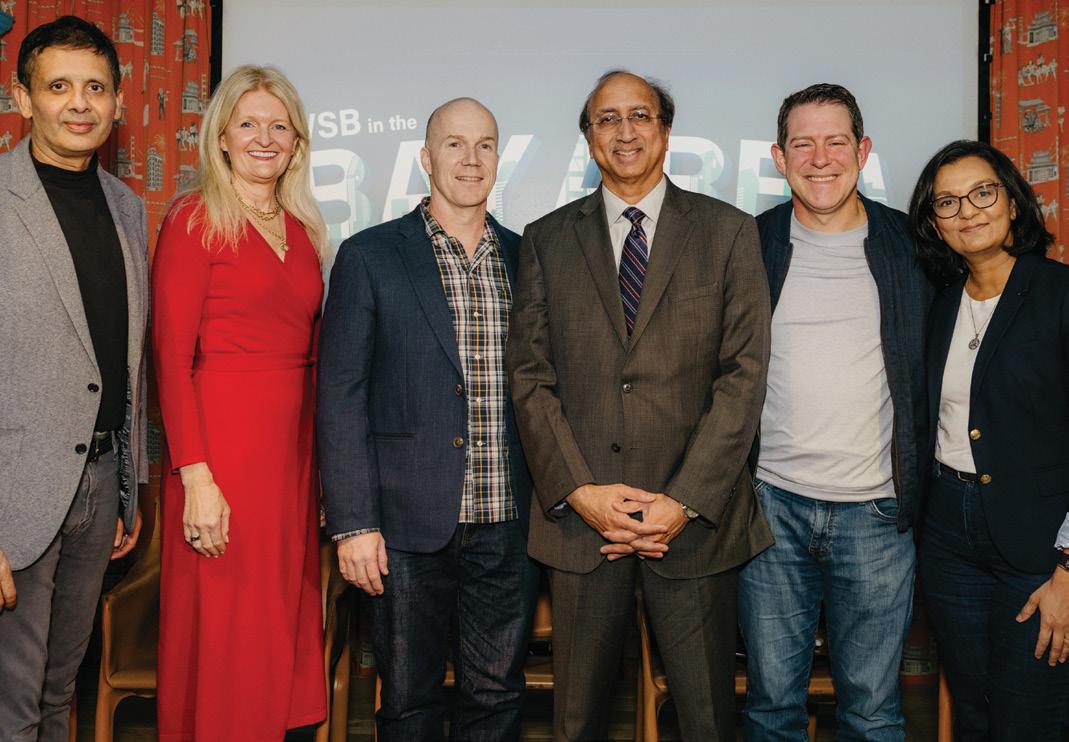
TFrom left to right, Dean Samba (center) poses with event speakers Chandar Pattabhiram, Ashley Dombkowski, Trevor Stow (BA ’90), Sean Jacobsohn (BBA ’94), and Singari Seshadri (MBA ’96).
In February, alumni and friends gathered in San Francisco for WSB in the Bay Area: A Conversation on Innovation, Starting Up, and Starting Over. During the event, an esteemed lineup of entrepreneurs and leaders discussed innovation, learning through failure, and pushing forward
amid adversity. Alum and venture capitalist Sean Jacobsohn (BBA ’94) was also presented with the WSB Impact Award by Vallabh “Samba” Sambamurthy, WSB’s Albert O. Nicholas Dean, for his demonstrated service to the school.
he Wisconsin Business Alumni (WBA) Board consists of over 30 dedicated members who work to strengthen the relationship between WSB and its more than 49,000 alumni. Alumni board chair Amy Jo Pedone (BBA ’96) provides insight on the board’s mission, impact, and how new initiatives are enhancing the alumni experience.
How is the board increasing engagement with the alumni network?
AP: We are developing a comprehensive platform to build community not only for Business Badgers, but for Badgers in business. The WBA Board’s goal is to curate regional, industry-specific, and young alumni connections by collaborating with alumni experts and WSB. The board works to foster engagement through in-person events, company alumni networks, social media content, and more. With the support and directives of WSB’s Alumni Relations team, board members represent applicable regions and industries to champion this new approach to engagement.
What are the current areas of focus for the board?
AP: From a regional perspective, we are focused on high density and fast-growing alumni regions where we can best support corporate Badger networks, build ambassadorship initiatives, and pilot industry events. From an industry perspective, we are cultivating connections to collaborate with Badgers in consulting, entrepreneurship, finance, and tech, as well as applicable WSB centers and student organizations.
Engagement of young alumni is a special area of focus, with the goal of strengthening the transition period from student to alumnihood by helping to implement BOLD (Badgers of the Last Decade) Circles regionally. These invaluable local groups are designed to foster young alumni connections with the Business Badger network and grow involvement with WSB.
What advice would you share with WSB alumni on getting involved with the school and the Business Badger network?
AP: We are an ever-growing engine of leaders and connectors who all bleed Badger red! Take advantage of this powerful network by making connections at your company, welcoming young alumni to your city, and joining the official Wisconsin Business Alumni LinkedIn group.
Do you have a Badger network within your company? If so, we want to hear about it! Please email the WBA Board at alumni@wsb.wisc.edu. ◀
BY CHRIS MALINA | PHOTOS BY MARY RAFFERTY
Katherine Sodeika (BBA ’16) and Suzanne Marovec (BBA ’17) were bound to connect eventually.
Despite having similar paths at the Wisconsin School of Business, the two just missed meeting each other while in Madison, but now find themselves working closely together and leading marketing efforts for one of the nation’s fastest growing retailers: ALDI.
“It’s just one of those serendipitous things,” says Sodeika.
The two play key roles on the company’s Brand and Campaigns team. As marketing director, Sodeika manages all aspects of the ALDI brand while shaping the company’s regional and national marketing strategy. As executive manager, Marovec drives operations and processes to ensure the company’s internal marketing teams and agency partner work cohesively and toward one unified strategy.
Continued on page 08
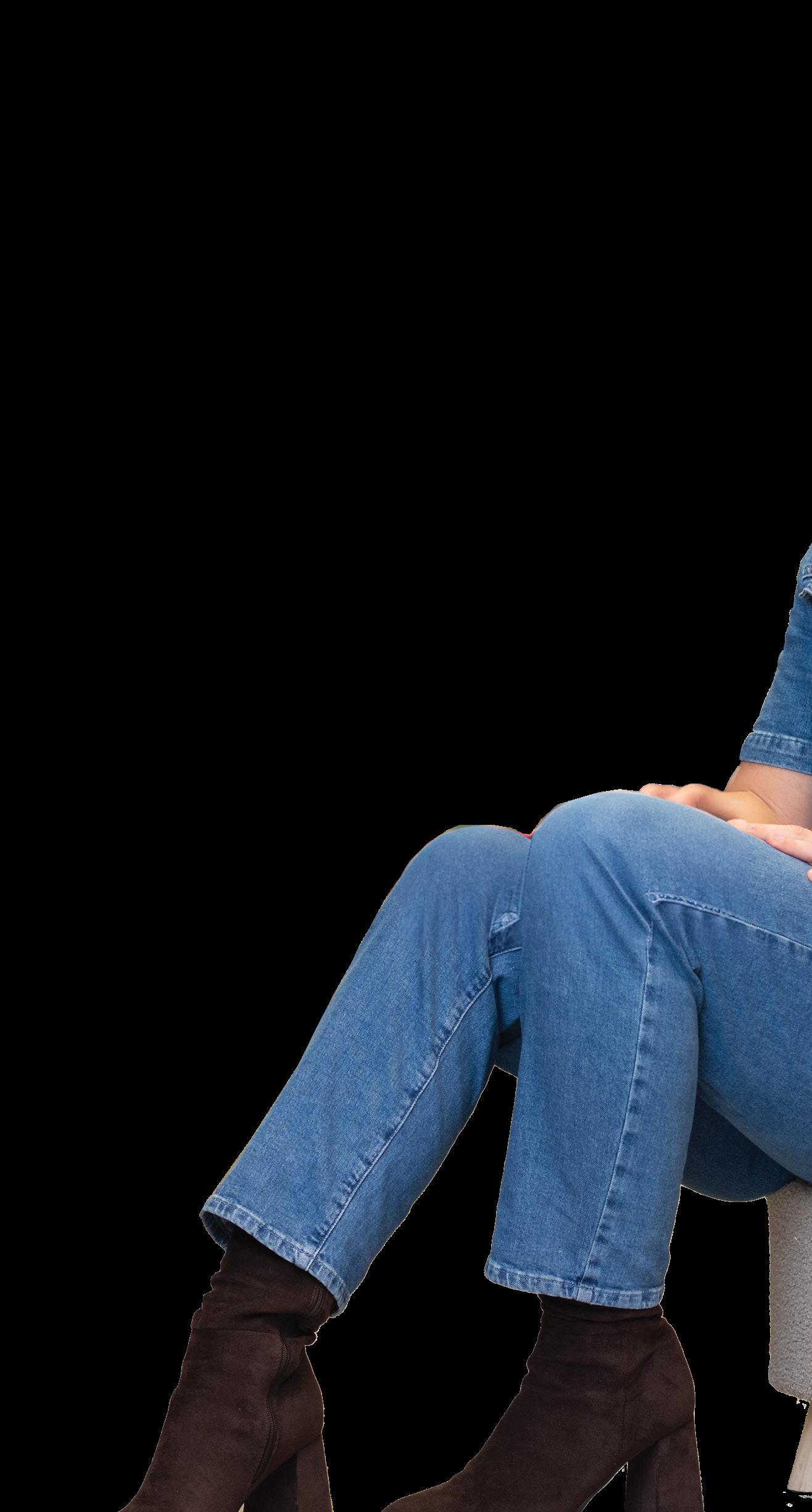

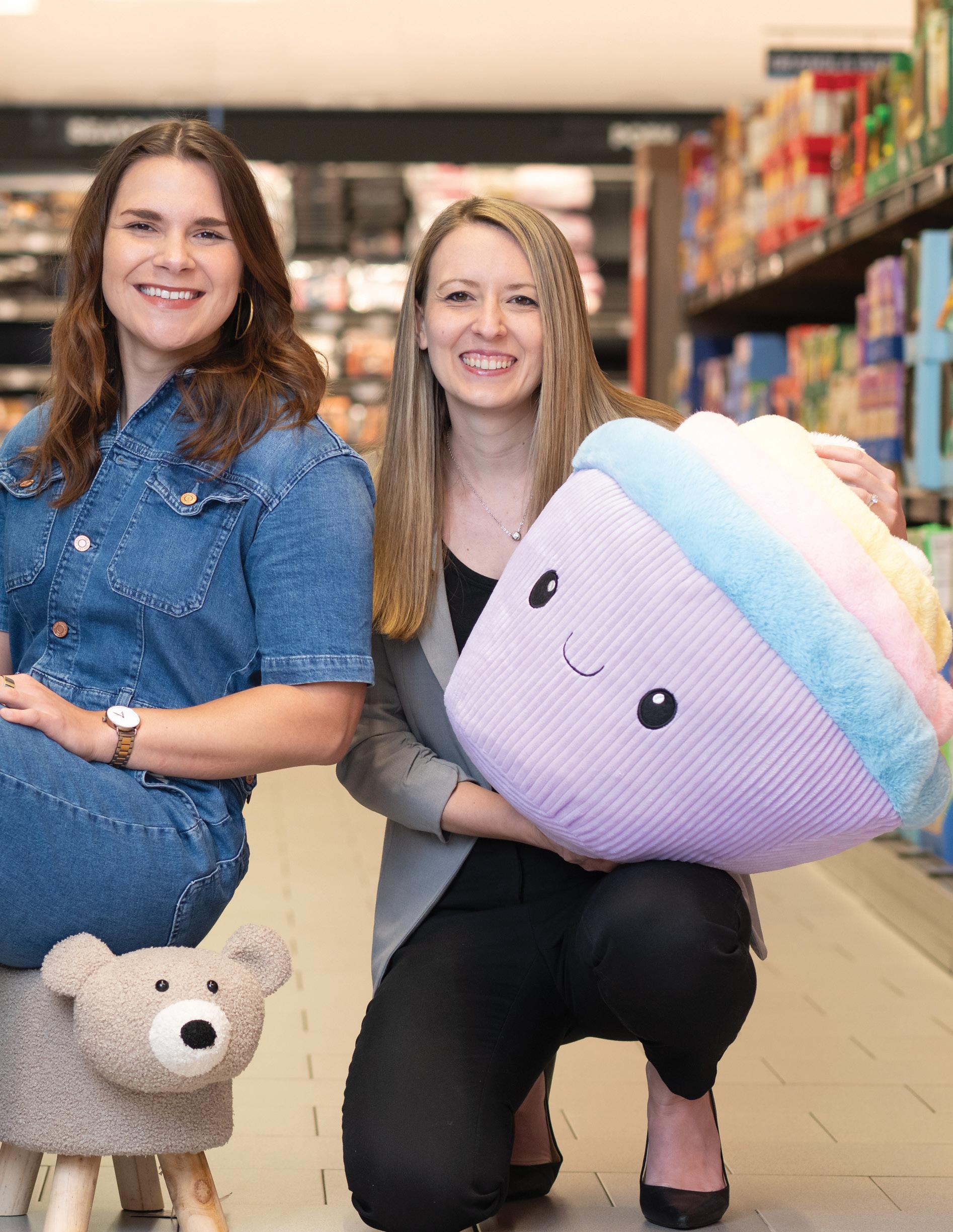
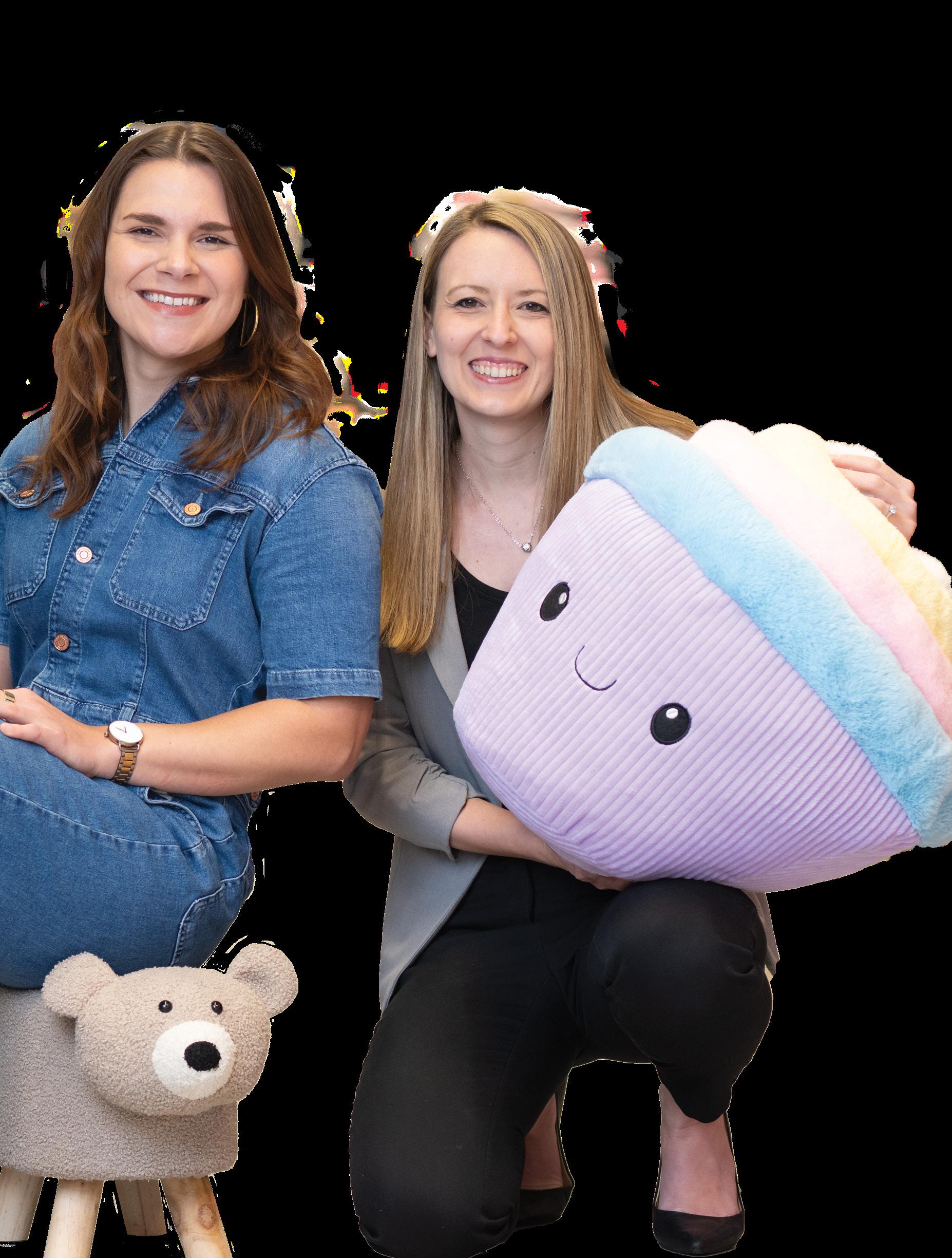

They’re complimentary roles on a growing team with exciting opportunities ahead. In 2024, ALDI announced it is on track to add 800 more stores to its portfolio by 2028.
“We have such a great opportunity to really put the pedal to the metal on the things that we’re already doing,” says Sodeika. “But our number one focus is still the customer, and we’ll continue to make sure that every decision we make aligns with the customer experience.”
Both Sodeika and Marovec grew up in the greater
Chicagoland area. They’ve each worked at the Illinoisbased ALDI headquarters and in the stores themselves. And both have found themselves on the forefront of innovation in their early careers. With so much in common, it’s no wonder they’ve hit it off.
For Sodeika, an entrepreneurial spirit runs in the family. It’s what drew her to study management, human resources, and entrepreneurship at WSB. After graduating, she was recruited by ALDI as a district manager, where she championed a new concept in the grocery business: curbside pickup. She
successfully led a pilot at her three stores before accepting a position as an e-commerce manager in 2019. In that role, she expanded the pilot program to nearly 50 ALDI stores—then unexpectedly but successfully scaled it to 500 as demand surged during the COVID-19 pandemic.
“That was definitely a huge accomplishment,” says Sodeika, who notes that curbside pickup is now available at nearly every ALDI location. “I’m proud that we could be so nimble and give the customer what they needed at that time.”
For Marovec, who came to UW–Madison with
the intention of studying engineering, business was a bit of a surprise discovery, but one that aligned with her interest in how things work.
“It was like a science in and of itself,” says Marovec, who pivoted her studies to marketing, management, and human resources. “Just the art of business and how businesses run and generate profits—it was all very interesting to me.”
After graduation, she launched her business career with Bon-Ton Stores in Milwaukee before joining ALDI as a marketing assistant in the corporate office. She later transitioned to a district manager role, where she led the rollout of the company’s newest in-store innovations, including electronic shelf labels and self-checkout, across her stores.
Then, in 2024, when Sodeika’s brand team expanded to include an executive manager role, Marovec returned to corporate headquarters to take on the challenge. It was a perfect blend of her marketing and operations expertise—and was made even better by finding out that her new boss was a Business Badger.
The pair immediately bonded over their shared WSB connection and agree the school was instrumental in their early career success.
“WSB really did a good job of hammering home those essential professional skills
like leadership, teamwork, and communication,” says Marovec. “Because of that, I was able to soar in my operations role.”
The sentiment about teamwork is one Sodeika shares. “The most successful things we’ve done at ALDI have been collaborative efforts,” she says. “None of us can do this work independently, so you need to have the skills to reach out to folks, make introductions, ask questions, and be vulnerable. The business school provided me with the confidence to go out and do that.”
Making a bold statement
As both Business Badgers continue to build and support a marketing strategy for the future, they’re crafting an approach that respects the ALDI brand’s history while infusing it with a new energy.
“We’ve seen a shift away from that old school, dented-
can grocer image to this really vibrant, value-added brand that people are making a part of their household,” says Marovec. “We’re really carving out a name for ourselves.”
Marovec highlights the company’s reputation for quality products and price leadership—drivers of ALDI marketing since the global grocer’s earliest days in its home country of Germany. While those core values remain, the way they’re communicated is evolving under Sodeika and Marovec’s leadership.
“We want to be bolder than we have been historically and want to take some more risks,” says Sodeika. That means refreshing the company’s advertisements, having more fun on social media, and doubling down on the things that make ALDI unique, like the in-store selection of nongrocery items—from sweatpants to
“We are putting our WSB education and experience to the test every day.”
SUZANNE MAROVEC (BBA ’17)
pet sofas—affectionately known to fans as the “aisle of shame,” due to customers’ tendencies to leave the store with an unexpected item not originally on their shopping list.
“It’s like a scavenger hunt for our customers,” says Sodeika. “They love it, and we love watching our fans lean into the fun stuff we do.”
That spirit of experimentation, while remaining grounded in strategy, also guides Marovec’s approach to internal processes.
“We’re challenging our teams to really think and work in different ways that we haven’t done before,” says Marovec. “In doing so, I think you really start to find your stride of what works, what doesn’t, and what’s the best way to collaborate.”
In an ever-evolving, highly competitive industry, there’s always something new to explore, an emerging technology to test, or a novel channel to pursue to gain that edge. In these moments, having a Business Badger— or better yet, two—on your team is always an advantage.
“With the continued growth of ALDI, there’s a lot happening and it’s fun to be a part of,” says Marovec. “We are putting our WSB education and experience to the test every day with this prominent and growing company.” ◀
What’s in a name
In a nod to the German business’ family roots and low prices, ALDI is short for Albrecht Diskont
2,400+ ALDI locations nationwide, with more than 85 in Wisconsin
Big savings ALDI saves shoppers up to 36% on an average shopping trip, according to the company’s 2025 Price Leadership Report
225+ New ALDI stores opening in 2025
Under-the-radar product pick
Simply Nature organic grass-fed beef. “It is so good and reasonably priced,” says Sodeika. “It’s great for meatballs and meatloaf.”
For dessert
Choceur dark chocolate sea salt caramels. “If you need a little sweet treat,” says Marovec, “that’s the one.”
WSB’s Stav Atir explains why we claim knowledge we can’t possibly have
BY CHRIS MALINA | PHOTO BY PAUL L. NEWBY II
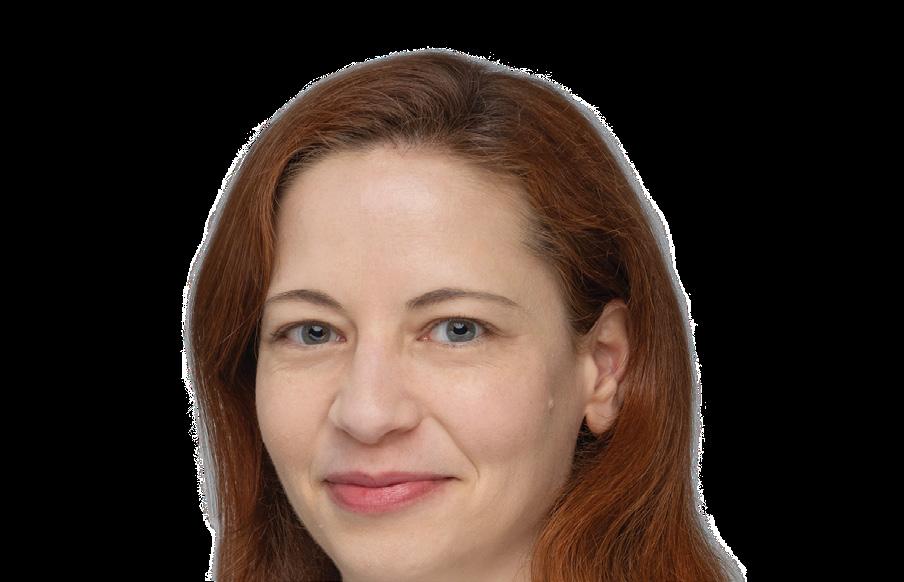

As a person who’s spent time in or around Wisconsin, surely you—a dairy connoisseur—are familiar with Barjolet cheese.
You might even have opinions about its rich flavor, pleasant aroma, or melty goodness. Take a moment to evaluate all you know about this cheese, and then consider this: Barjolet doesn’t exist, and you may have just fallen into the trap of “overclaiming.”
“This phenomenon
occurs when people claim knowledge of concepts, terms, or ideas that don’t actually exist,” says Stav Atir, assistant professor of management and human resources at the Wisconsin School of Business. “I’m particularly interested in understanding why people sometimes claim knowledge they can’t possibly have.”
How people evaluate— and misevaluate—their own expertise has been at the core of Atir’s academic
interests since her doctoral program in psychology at Cornell University. She pivoted to business during a postdoctoral program, which allowed her to pursue this research through a new lens: one with higher stakes than fake cheese.
“When managers or employees overclaim knowledge, it can lead to poor decisions, missed opportunities for learning, and potential organizational risks,” says Atir, whose research on overclaiming has been featured in Harvard Business Review and other outlets. “Understanding these patterns can help organizations develop better training programs and decision-making processes.”
Over the course of several studies, Atir has been able to measure the extent of our overclaiming by asking participants to assess their own level of general knowledge about a particular field, such as financial literacy. Participants are then presented with a mix of real and nonexistent terms related to the subject and asked to rate their level of familiarity with each one.
What Atir found, no matter the context, was that respondents who had self-perceived expertise on the given subject were more prone to claim knowledge of a bogus term, like “pre-rated stocks” or “annualized credit.”
“That shows that people’s perceptions of their own expertise don’t always match reality,” says Atir. “Of course, in daily life, we’re rarely asked about nonexistent terms. But we are asked about terms that we don’t know or don’t know well. Studying overclaiming tells us something about these
No matter who we are, or what our background is, Atir says the findings point to the need to check ourselves—and not just solely rely on our own feelings of expertise.
“If you’re unsure whether you know something or not, go through that extra mental step of testing yourself,” says Atir. “You can also seek
“Understanding these patterns can help organizations develop better training programs and decision-making processes.”
STAV ATIR
everyday situations.”
To be fair, overclaiming isn’t the same as lying. After all, “annualized credit” sounds like a plausible financial term. In many cases, our brains take shortcuts based on how much we think we know about a certain area, and the phenomenon is common among nonexperts and experts alike. Even in a study among physicians, about 39% claimed knowledge of at least one nonexistent medical term, and higher percentages have been observed in other domains.
objective feedback and concrete evidence of your knowledge.”
Of course, admitting to a gap in your knowledge at work is easier said than done, and can potentially feel scary or intimidating, but Atir says that’s where good leadership can play an important role.
“Our research shows that when people feel threatened about their expertise, they’re less likely to engage in effective learning behaviors,” she says. “Managers can help by normalizing learning and knowledge sharing on their teams.”
From employee training to team dynamics, Atir’s research has far-reaching implications for organizations. Moving forward, she aims to translate her findings on human behavior into practical applications that help organizations guard against overclaiming.
“It would be really exciting to look at what interventions we can develop based on the theory of what we think is going on when people overclaim,” she says. “If we’re right, we should be able to come up with training programs or ways of structuring the environment in real organizations that increase intellectual humility.” ◀
How familiar are you with the following stock market “terms?”
Balloon interest
Ratio penalty
Postflation
Sinker
Exchange ratio
Liquidity premium Flex tax
Wraparound mortgage
Joint dividend
Optimal index
Bogus: Flex tax, postflation, ratio penalty, joint dividend, optimal index
Real: Balloon interest, exchange ratio, sinker, liquidity premium, wraparound mortgage

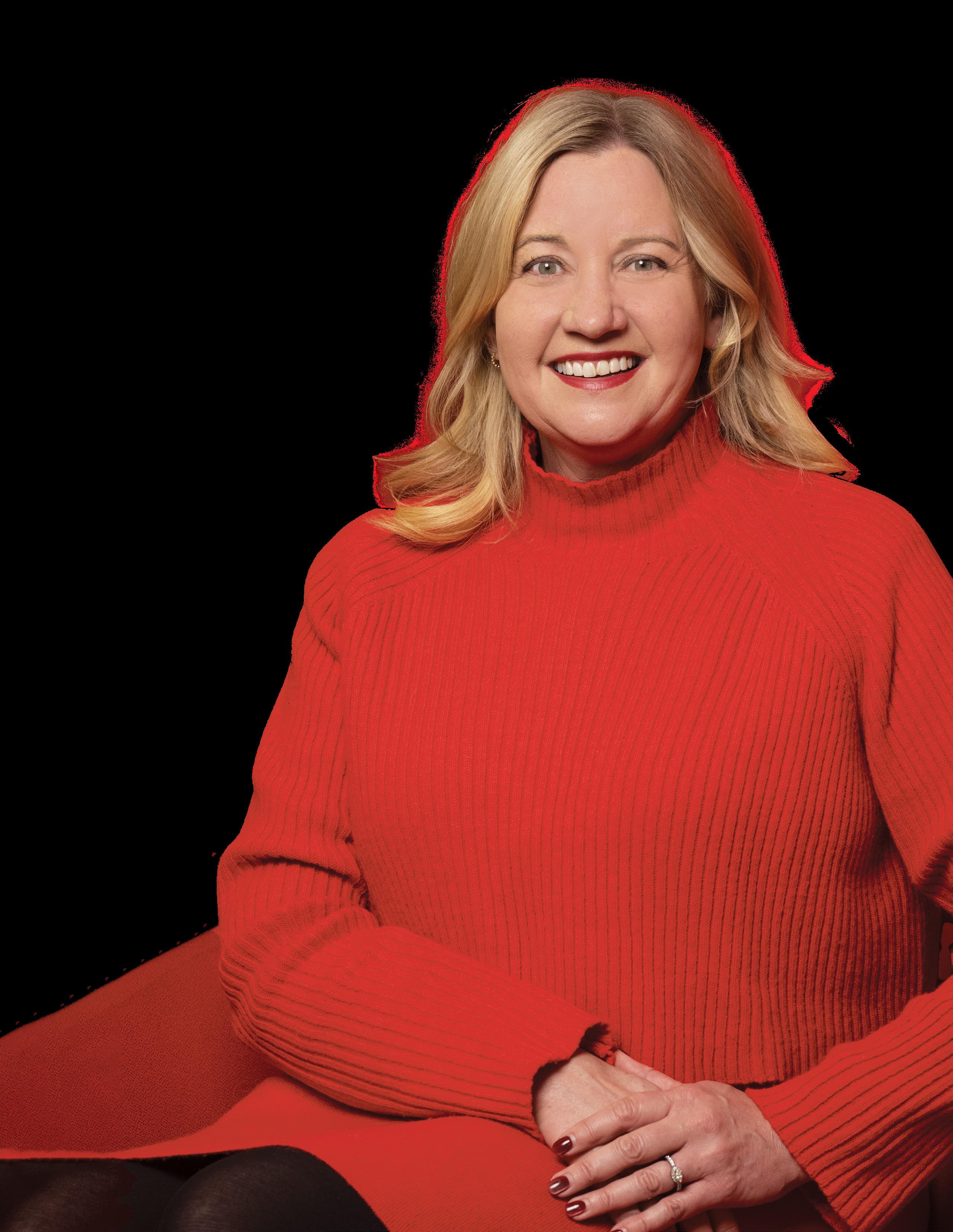
BY CHRIS MALINA | PHOTOS BY PAUL L. NEWBY II
As a Madison-native, two-time Badger, and former Wisconsin School of Business employee, Alisa Robertson (BA ’94, MBA ’03) has spent a lifetime championing UW–Madison.
For the past 14 years, she’s held senior-level positions with the Wisconsin Foundation and Alumni Association (WFAA), where she’s shaped strategic growth, laid the groundwork for the $4 billion All Ways Forward campaign, helped usher in
some of the best fundraising years in WFAA history—and is only getting started.
In January, Robertson stepped into the top job at WFAA: president and CEO. She succeeds another member of the Business Badger community, Mike Knetter—who previously served as WSB’s dean—and now oversees more than 300 employees at UW–Madison’s hub for advancement, philanthropy, and alumni engagement.
Continued on next page




WSB: What is your overall vision for WFAA?
Alisa Robertson: We want to be the best at what we do. We want to be the best at building pride and affinity, the best at building a strong alumni network and securing resources. Our exceptional team is very focused on bringing in results. They’re also focused on incorporating best practices not just from other institutions like ours, but also the business world, and figuring out how to incorporate these elements into our work.
The cost to run a truly exceptional world-class university has increased, so support from alumni and donors who care about UW–Madison is more important than ever. To that end, I think
we need to embrace new technologies that can help us scale our work to engage more alumni and better understand their interests. To me, it comes down to: Can your university and alumni association know you as well as a company like Amazon does? We need to be able to incorporate and embrace tools to help us better deliver content that is of interest to our alumni and friends in a personal and meaningful way.
WSB: How did WSB prepare you for your current role?
AR: The business school has historically been very strong at engaging its network, and working there gave me a front row seat to great work being done in advancement, alumni relations, development, and
communications. That’s helped me think about how we might apply these best practices more broadly at the university level. When Mike Knetter and I joined the UW Foundation, we brought with us the insights we learned from the business alumni community about how they wanted to be engaged and how we could add value.
I also decided to take on the evening MBA program while working at WSB, which was intense, but incredibly valuable. I learned so much from the academic content itself but also from working alongside the other people in the program. Getting my MBA was probably one of the most important things I did in preparing for the rest of my career.
WSB: What’s something about this work that fuels you?
AR: These days, an alumni event is one of the few opportunities where people with really diverse viewpoints can get together around a common interest. Our large base of alumni and donors is full of people with different views and passions. Two individuals sitting together at an event may be on completely opposite ends of the political spectrum, but maybe they have a shared interest in Badger athletics or cancer research. That allows them to have a conversation. I believe our work, both at the university and WFAA, can really bring people together in a way you don’t see as much anymore.
WSB: What are a few of the most memorable moments from your career at WFAA?
AR: Being part of the merger between the UW Foundation and the Wisconsin Alumni Association was an experience of a lifetime. The 2014 merger was particularly nuanced in that we had two nonprofit organizations with two boards and a lot of passion on both sides, and we had to be strategic about how to bring everyone together around an idea that we all could believe in. Ultimately, we ended up with an entity that, I believe, is much stronger and more productive.
yesterday. We’re actually now in the early stages of planning for our next campaign and applying what we learned from All Ways Forward, and I think we’ll be in a great position to build on that.
WSB: What have you learned from working with your predecessor—and former WSB dean—Mike Knetter?
AR: Mike is an economist, and I was an English major, so we look at things from very different vantage points. But Mike is also a visionary, and I’ve really come to appreciate and understand his way of thinking, as well as how he approaches both
“Get involved if you’re not involved—and stay involved.”
ALISA ROBERTSON (BA ’94, MBA ’03)
There’s also the All Ways Forward campaign. University campaigns can sometimes last up to a decade, and with the planning factored in, ours was about eight-and-ahalf years. But the amazing success of the campaign is something that I think we can all be proud of. The campaign ended in 2021, but to me, it feels like just
WSB: How can WSB play a role in driving the university forward?
AR: Cross-disciplinary research and education are really the wave of the future, and I think WSB has the opportunity to have an even greater reach and impact across campus—and beyond—by finding those opportunities to collaborate. WSB is uniquely positioned with Dean Samba as a leader. He is an extraordinary collaborator and is focused on finding the opportunities at the intersection of business and other areas of strength on campus, like AI and entrepreneurship.
WSB: You have the attention of your fellow WSB alumni. What message would you like to share?
Cool perk of the job?
I get to be inspired literally every single day by someone on campus, be it a student, an alum, or a faculty member. It’s one of the best parts about working for the university.
True confession?
problems and opportunities. I’ve really learned so much from him. He’s also given me a true appreciation and understanding for how important it is to be passionate about your work. In this line of work, you can’t fake it, and Mike lives and breathes his passion for this university every day.
AR: Get involved if you’re not involved—and stay involved. Think about how you can help both WSB and the university continue to be the incredible institutions that they are today. You can help by mentoring students or hiring alumni, but you can also help by just talking up the school to others. Part of what has built our incredibly passionate alumni base is that people love talking about UW–Madison. The next time you’re on vacation, try wearing a Wisconsin t-shirt or hat. Multiple people will come up to you and tell you about their connection to the university. It’s truly remarkable how passionate and energetic the Wisconsin alumni network is. ◀

When looking at colleges, I applied to the University of Minnesota. But once I was accepted here, I obviously chose UW–Madison!
Other memories from your time at WSB?
My mom actually worked for the Management Institute on campus, which later became WSB’s Center for Professional & Executive Development. So, when I joined the business school, my mom was actually working two floors away from me.

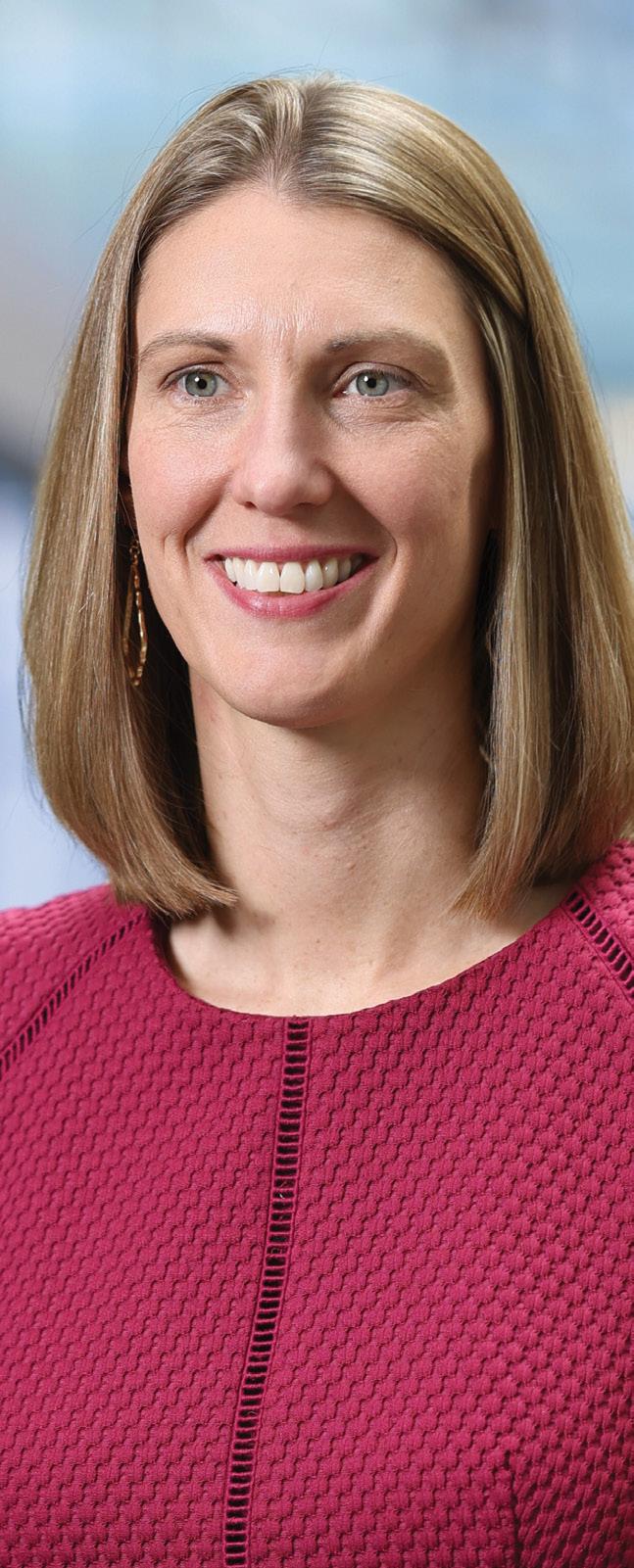
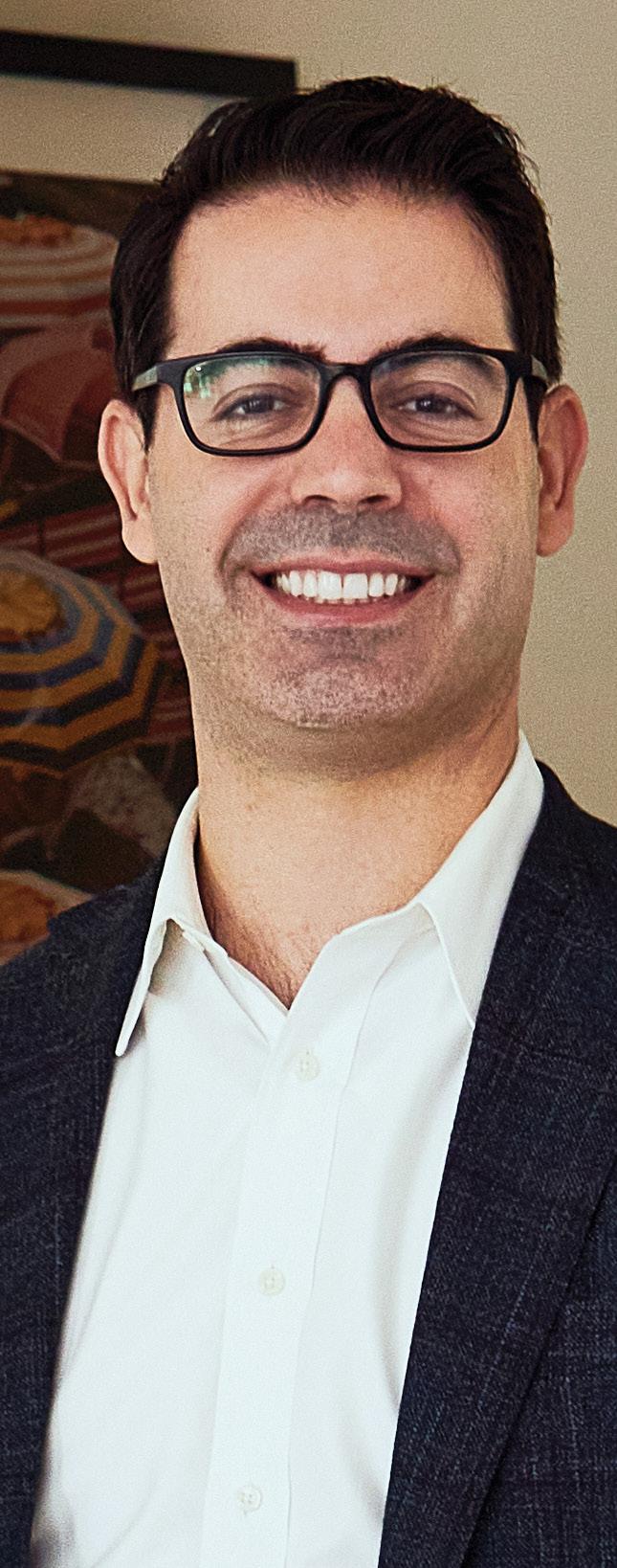
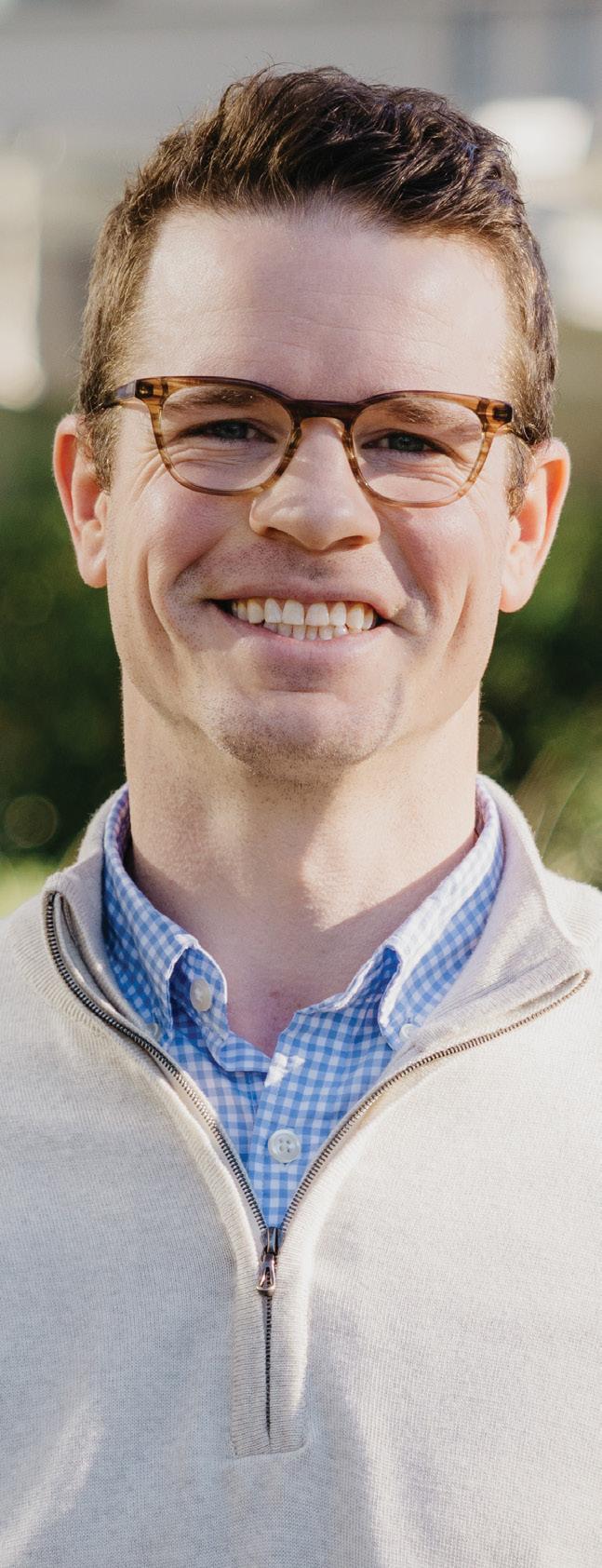
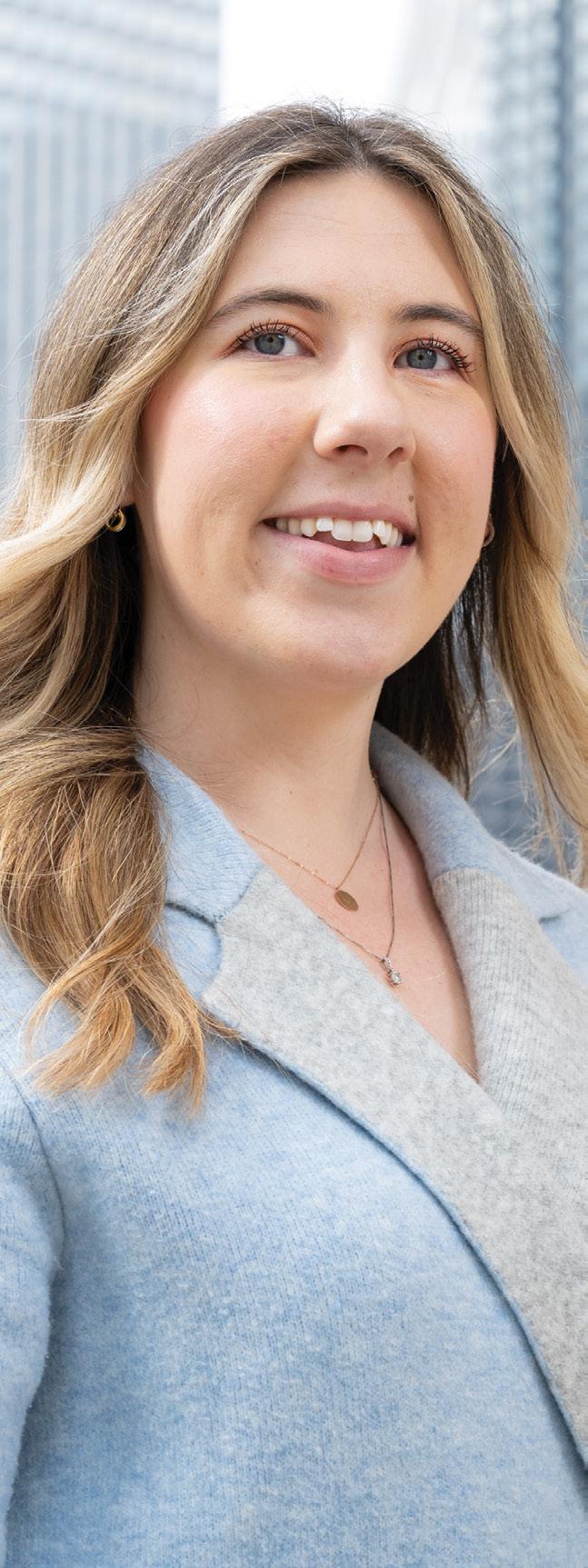
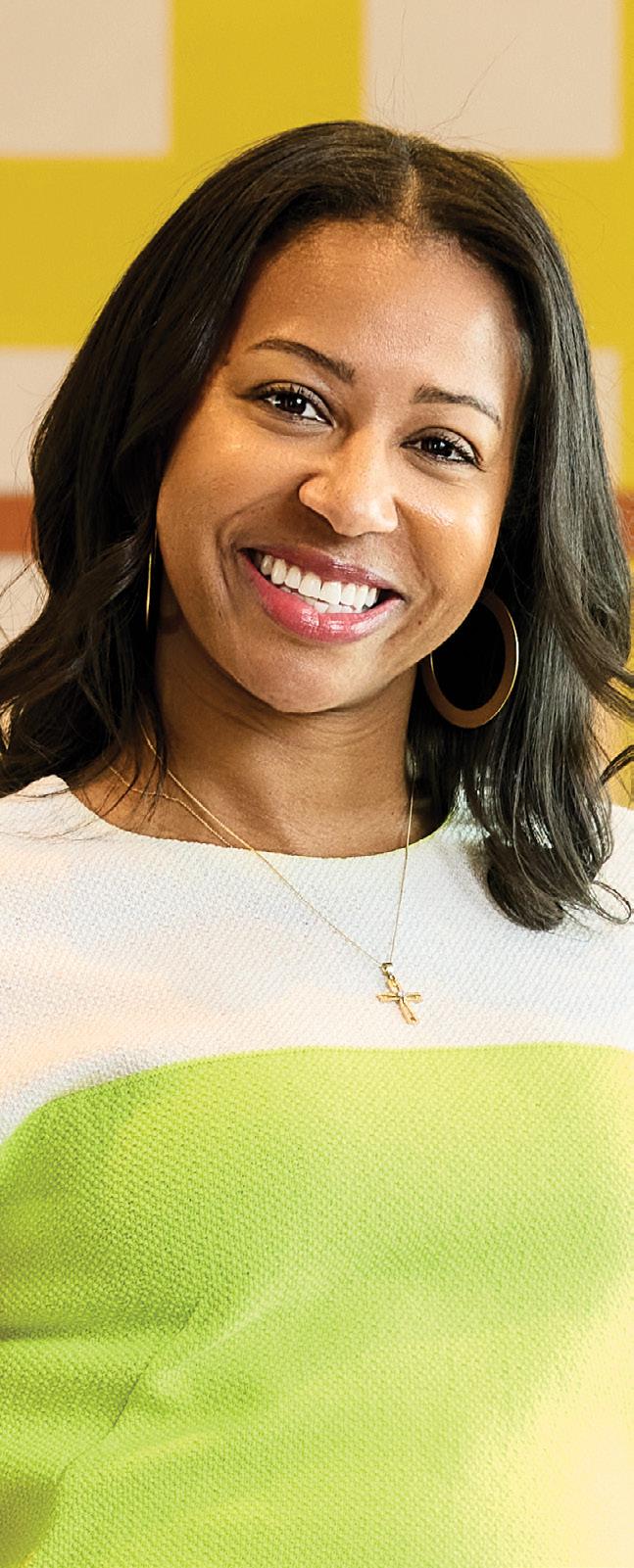

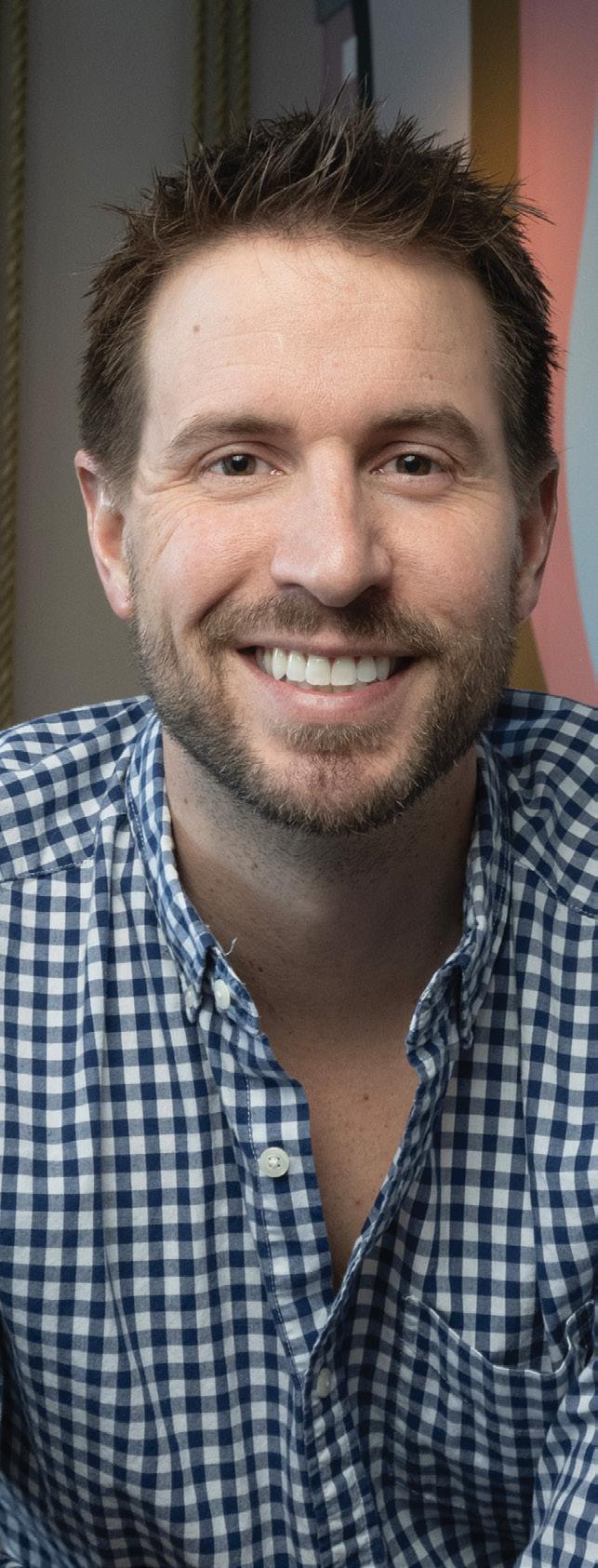
BY
Industry leaders. Forward thinkers. Movers and shakers. There are plenty of ways to describe these impressive Wisconsin School of Business graduates—but however you refer to them, you’ll want to keep your eye on them. Meet the 2025 8 to Watch class of alumni demonstrating excellence in their fields.
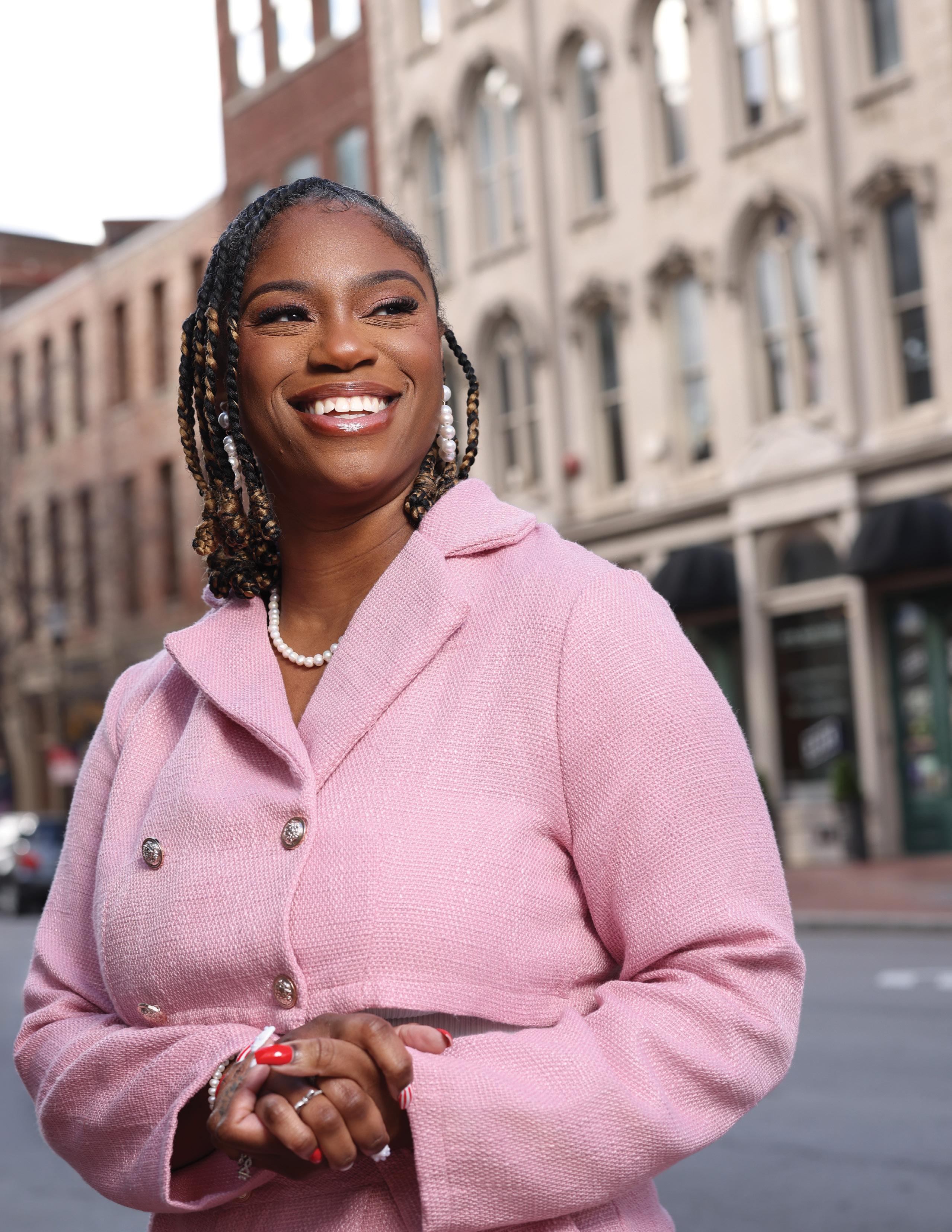
Associate Director, Total Rewards | Fortra
Location: Louisville, Kentucky
Previous jobs: Various roles in human resources, Waystar; HR analyst, Emerson
Why she’s among the 8 to Watch: At Fortra, Stephens Joy leads a seven-person HR team that supports many of the cybersecurity firm’s more than 2,500 employees around the globe. She’s risen quickly in her career, working in talent acquisition and compensation roles before growing into total rewards, which she describes as “the stuff that makes you want to take a job and makes you want to stay.” That means she’s working to expand access to wellness services, coaching, and other employee-centered perks beyond just salary and benefits. “It’s a space that makes such incredible impact on people’s day-to-day lives.”
Simply the best: As an undergraduate, Stephens Joy began working at Costco and quickly noticed how well the company cared for their employees. Seeing the significant role human resources played in that ignited a spark and inspired her to pursue an HRfocused MBA. After doing some additional research on programs, the decision to come to Wisconsin was easy. “You want the best,” she says.
Impact of a WSB degree: Collaborating on crossfunctional teams during her MBA program prepared her for daily meetings with employees at all levels, including the C-suite, who each bring unique needs and priorities to the table. “My job is to find resolutions that make everyone happy in some capacity, and I learned how to do that at Wisconsin.”
Busy, but balanced: Outside of work and parenting, Stephens Joy maintains an active volunteer schedule with Big Brothers Big Sisters of America and serves on the board for Louisville Urban League Young Professionals. She is also a certified life coach who helps busy women like herself find breathing room amid packed schedules. “Everyone likes to say they’re booked and busy. I want my clients to be booked and balanced.”
Photo by Jessica Ebelhar
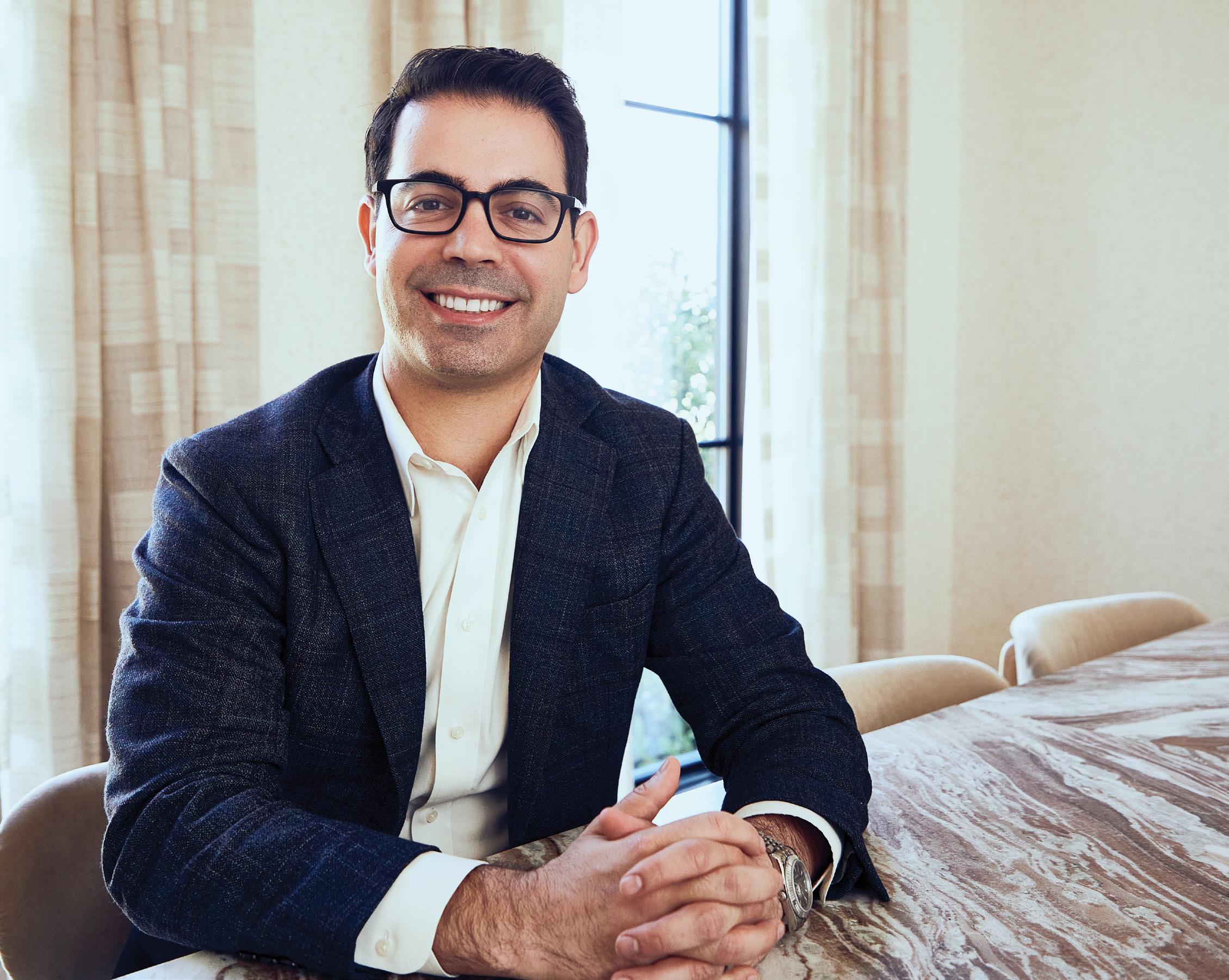
Location: New York
Previous jobs: Investment banking associate, financial sponsors, Morgan Stanley; financial lending associate, GE Capital; financial analyst, GE HealthCare
Why he’s among the 8 to Watch: Inspired by his favorite nurse— his mom—and driven to make a difference, Gilberg pivoted from an exciting financial career in 2017 to launch Elder Care Homecare. The concierge senior care service places skilled nurses and caregivers directly into clients’ homes for personalized care. The model led to quick success: The company has now expanded its sought-after services across the New York metropolitan area, becoming one of the fastest growing home care agencies in the U.S.
Impact of a WSB degree: A New York native, Gilberg came to WSB to pursue the school’s top-ranked real estate program before pivoting to finance. He credits WSB’s vast array of classes and internship opportunities with building foundational knowledge across disciplines and shaping his career path.
Lots of hats: Today, Elder Care Homecare has over 2,000 specialized employees—but it wasn’t always that way. “In the beginning, I was the marketer, salesperson, finance guy, scheduler, HR, and nurse David,” he says. “Covering almost every role allowed me to have a better understanding and passion for what I’m doing.”
Raising the bar: By delivering a higher standard of care, one that truly values both clients and caregivers, Gilberg’s fast-growing company has caught the attention of competitors eager to replicate his business model—and he’s perfectly fine with that. “It might be negative for my business, but overall, it’s elevating the entire industry and helping families, which is really what matters.”
Advice for caregivers: No one is ever fully prepared to care for an aging loved one. When the time comes, Gilberg wants caregivers to know they’re not alone. “Everybody goes through this in some way. It’s extremely challenging, but you don’t need to do it all on your own. Help is out there.”
MBA ’14
Assistant Vice President, Region Manager for Pennsylvania and West Virginia | Liberty Mutual and Safeco Insurance
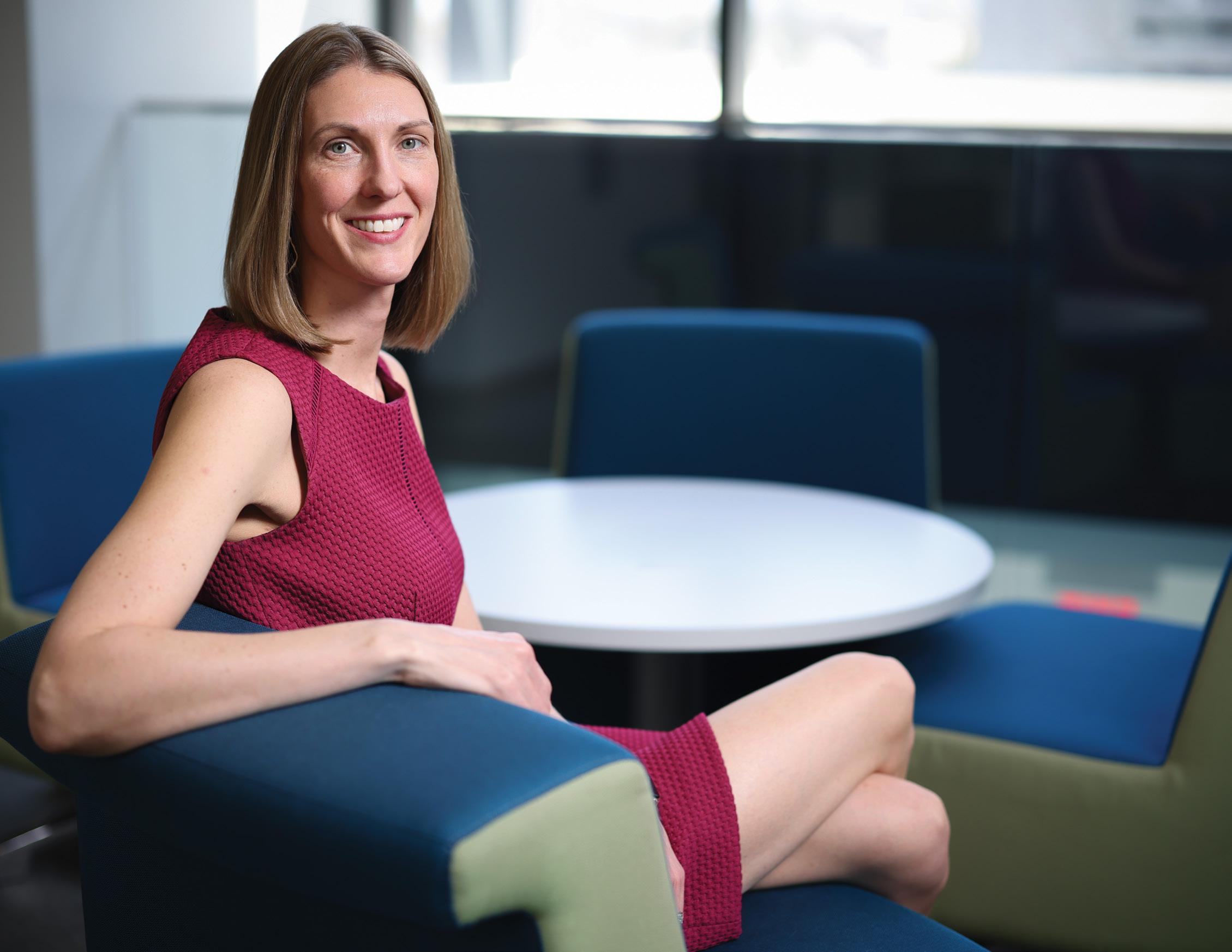
Location: Cincinnati
Previous jobs: Various director and consultant roles, Liberty Mutual and Safeco Insurance; commercial underwriter, Markel Corporation
Why she’s among the 8 to Watch: From her first internship to her latest leadership role, Zeaiter has made lasting impacts across the independent agency sector of the insurance industry. At Liberty Mutual, she’s launched and marketed new products, built a field support team from the ground up, and earned the company’s President’s Award in 2019 for leading the successful execution of a $230 million book transfer—one of the largest in company history.
Impact of a WSB degree: Zeaiter credits WSB risk and insurance staff and faculty, including Joan Schmit (BBA ’78, MBA ’79) and James Swanke (BBA ’80, MBA ’81), with going the extra mile to help launch her post-MBA career. “They really used their own professional networks to build my connections as I was branching into the industry.”
On the move: After graduation, Zeaiter joined Liberty Mutual’s leadership development program, where she spent two years
crisscrossing the country, working on personal and commercial insurance consulting projects. Her career eventually led her to Cincinnati, opening the door to new leadership opportunities, including a promotion to a brand-new AVP role in early 2025. She’s now tasked with profitably growing the Safeco brand in her region. “That means advocating for our agents, getting the right product, and getting the right pricing for us to be successful in market.”
Getting her feet wet: A former collegiate swimmer, Zeaiter now competes in open-water swimming events throughout the country, including an extremely chilly and choppy eight-mile swim around Mackinac Island in her home state of Michigan.
Change agent: While women make up a majority of the insurance workforce, Zeaiter notes they remain underrepresented in top agency roles, something she’s working to change through her advocacy efforts, resource groups, and mentorship opportunities.
Photo by Jessica Ebelhar

Location: New York
Previous jobs: Various roles in sales, service, and operations, Ford Motor Company
Why he’s among the 8 to Watch: Petnkeu is leading Lincoln’s transformation into a rising automotive powerhouse. In seven years, he has taken on roles of growing responsibility, driving growth and empowering his team. Previously, he oversaw the brand’s East Coast sales operation, contributing to the reinvention of the iconic American brand, which hit 100,000 U.S. sales in 2024 for the first time since 2007.
“It’s been a great challenge and a tremendous ride for a brand that is over 100 years old. We’re still here today, and we’re continuing to write our history.”
Impact of a WSB degree: When navigating complex situations with clients or dealers, Petnkeu draws on a key lesson learned from WSB: “I’m keenly aware of the fact that I don’t have all the answers, but I work with the right folks to identify the root cause and help solve the problem, and that comes from my experience at the school.”
Paying it forward: Originally from Cameroon, Petnkeu immigrated to the U.S. as a child in pursuit of better educational opportunities, and now feels a deep responsibility to uplift others. At Ford, he’s passionate about helping his team achieve professional success, build confidence, and develop as leaders. “I always tell them that my job is for them to take my job, and hopefully go past me in the organization.”
Parlez-vous français: A fluent French speaker, Petnkeu has woven the language throughout his everyday life—from journaling in French each morning to watching French shows on Netflix.
Advice to students: For Petnkeu, earning a degree and starting a full-time position is just the beginning. “Be a learning machine. Real learning starts when you get out there in the game.”

BBA ’21, MS ’22
Senior Associate Data Solutions Consultant | Spaulding Ridge
Location: Chicago
Previous jobs: Various consulting roles, Spaulding Ridge
Why she’s among the 8 to Watch: As an early member of the analytics team at Spaulding Ridge, a global leader in business transformation delivering technology solutions, Olsen has been a driving force in the company’s success. She established best practices, defined success metrics from the client perspective, and laid the groundwork for key projects and major milestones. Now, she fosters meaningful client relationships and mentors the next generation of developers. “I get to help other people learn how to be good developers and managers, which is what I’m passionate about.”
Coming full circle: After earning her undergraduate degree in international business and marketing from WSB, Olsen enrolled in WSB’s Master of ScienceBusiness: Analytics (MSBA) program to hone her skills in technical decision-making. She toured Spaulding Ridge through one of the program’s career exploration trips and later landed an analyst developer position. She now hosts that same tour that she took as a student and is actively involved in recruiting at the company—opening the door to new analysts and developers, including Business Badgers like herself.
Empowering female voices: Outside of her professional responsibilities, Olsen is part of Women Elevate, an employee resource group at Spaulding Ridge. She serves as a mentor and creates space for women to speak freely about their passions, career aspirations, and perspectives.
Impact of a WSB degree: A self-described evangelist for the MSBA degree, the double Business Badger credits her WSB education for preparing her to tackle any problem thrown her way. “The MSBA program gives you a tool kit of ideas and solutions to solve real-world problems. It teaches you how to learn for the future.”
Photo by Mary Rafferty
General
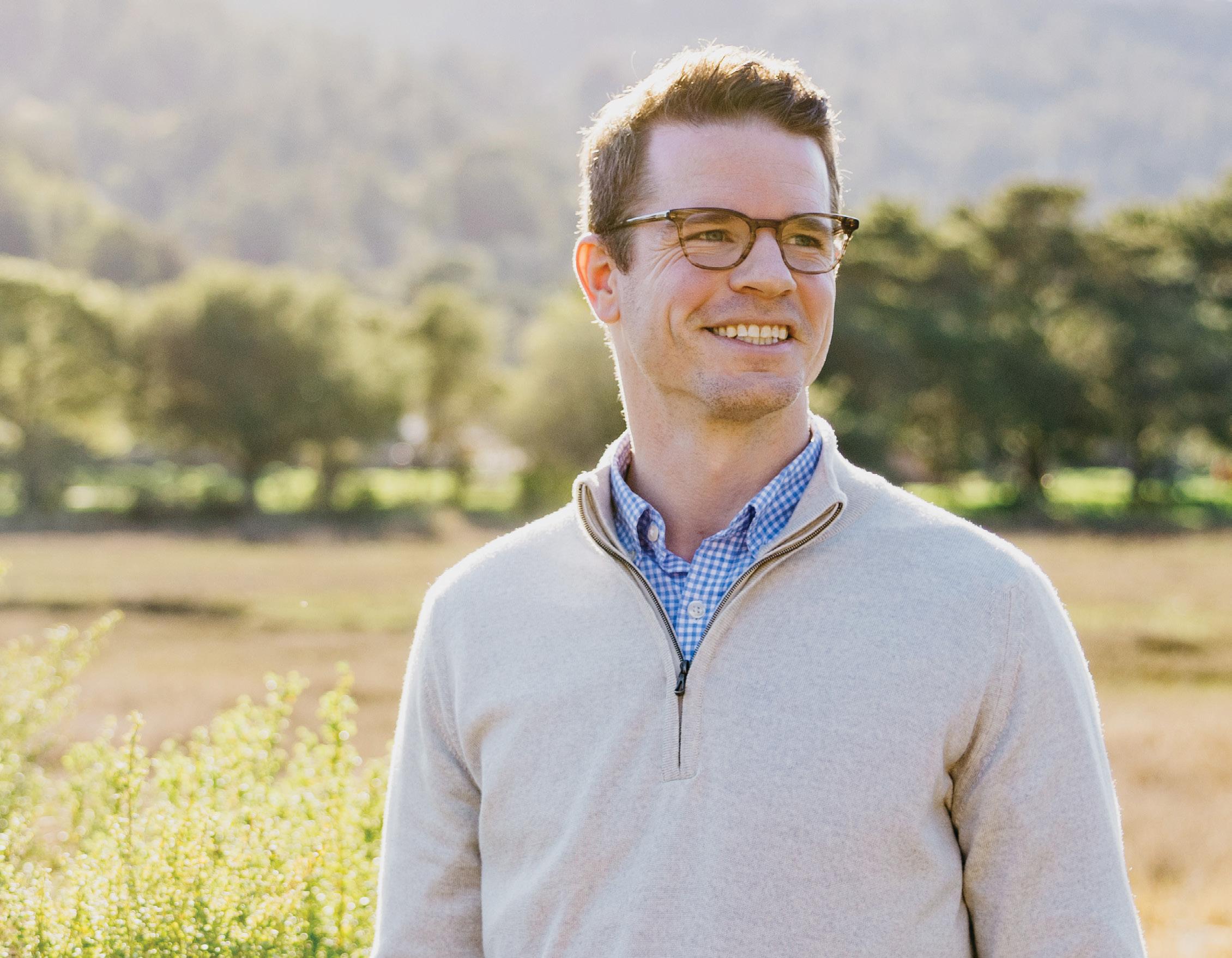
Location: San Francisco
Previous jobs: General manager, telehealth solutions, Doximity; corporate strategy and global business services roles, Procter & Gamble
Why he’s among the 8 to Watch: At health care platform Doximity, Kornetzke leads a 40-person team that licenses and deploys new clinical workflow tools, from patient communication and on-call scheduling services to AI-powered productivity software, to help today’s hyper-busy physicians. “We build things that ultimately help doctors take better care of patients.”
A lifelong love: Growing up in the shadow of UW–Madison, Kornetzke knew exactly where he wanted to attend college. He studied finance at WSB before being recruited to P&G in Cincinnati, where he’d maintain his lifelong Badger pride by serving as the city’s Wisconsin Alumni Association chapter president.
Call the doctor: While earning an MBA, Kornetzke landed a position at Doximity: best known at the time as a medical networking platform. Over the years, Kornetzke helped expand the company’s scope, including building out a robust telehealth
platform that saw significant growth during the COVID-19 pandemic.
Impact of a WSB degree: Kornetzke says WSB’s approach to business education—one that’s rooted in humble, roll-up-yoursleeves Midwestern values—helped shape his personal “playercoach” leadership style. “I lead the team and set the goals, but like to be in the trenches with them doing whatever needs to be done.”
Never stop learning: In a rapidly changing world, Kornetzke emphasizes the importance of treating learning as a skill to be developed. It’s advice he’d offer to anyone, from a colleague to his young children. “If you can cultivate that hunger to learn, you can stay at the forefront of any change that comes your way.”
“We build things that ultimately help doctors take better care of patients.”
AARON KORNETZKE (BBA ’11)
Senior Vice President, Development & Construction | Jamestown
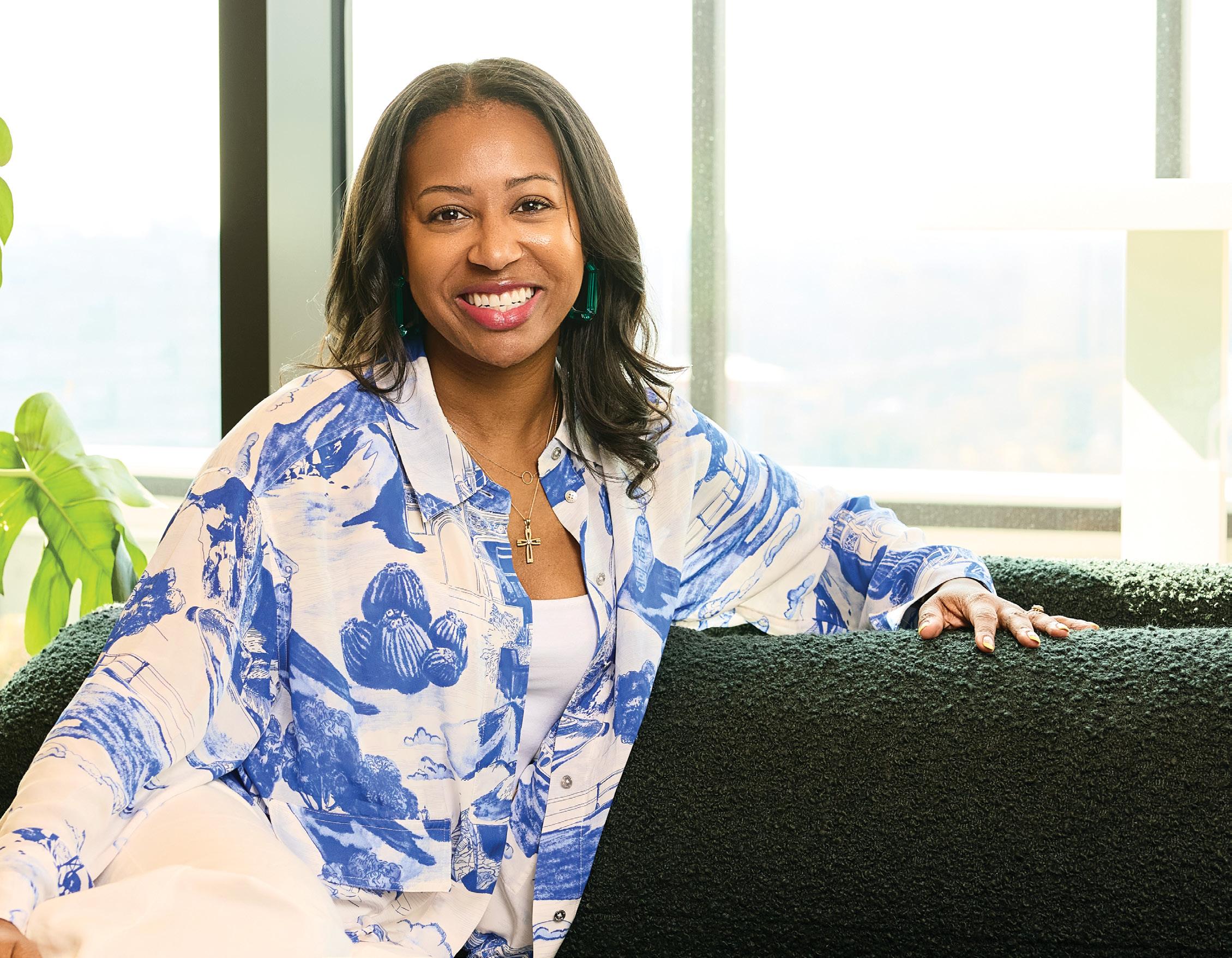
Location: Atlanta
Previous jobs: Development manager positions, Jamestown and Skanska Commercial Development; architectural designer, Gensler
Why she’s among the 8 to Watch: A former architect, Kirk is passionate about design and thoughtful placemaking, guiding her to develop with intention at real estate investment company Jamestown. With a hand in leasing, redevelopment, and acquisition, she oversees real estate projects at every stage: from blueprint to skyscraper. “I love the idea that I get to shape where you live, where you work, where you have fun, and help you live your passion.”
A warm welcome: Seeking to pivot from architecture to business, Kirk was drawn to WSB’s welcoming culture and commitment to advancing diversity in business. These values are reflected in its long-standing partnership with the Consortium for Graduate Study in Management, which awarded her a fellowship. “It was as if I was already a part of the network. Wisconsin really had open arms to me before I was formally accepted.”
Impact of a WSB degree: Beyond gaining practical experience in real estate law—skills she applies daily to review equity agreements, tenant leases, and contracts—she is grateful for the real-world opportunities WSB provided. One pivotal experience was a case competition where she met her future boss at Jamestown, leading to an internship that set her career in motion.
Sustainable specs: Kirk was a key player in developing the first locally sourced mass timber project in Atlanta, which is now the largest southern yellow pine building in the Southeast. She says this project reflects the company’s vision for sustainable, uniquely designed buildings that incorporate wellness features like ecofriendly rooftop decks.
Offering time and talent: In addition to serving on the Wisconsin Business Alumni Board, she serves on boards for Atlanta organizations that assist with food insecurity and provide people with sustainable, affordable environments. “These organizations really connect with my passion for spaces, places, and people.”
by Nick Burchell

by Paul L. Newby II
Co-Founder, Managing Partner, and Owner | FreshFin
Location: Madison
Previous jobs: Civil engineer, Reserve Advisors, Inc.; geotechnical engineer, Terracon
Why he’s among the 8 to Watch: Foster is making waves at FreshFin, a fast-growing restaurant brand with locations in Wisconsin and beyond. Leveraging his operations expertise, Foster handles daily responsibilities—like working with team members, customers, and vendors— while focusing on big-picture strategies including marketing, system improvements, and business growth.
The path to FreshFin: While earning his MBA, the former engineer met his current business partner (the other co-founder of FreshFin), who shared the ins and outs of the business. The chance to join the company from the ground up spoke to the Montana native’s lifelong passion for the restaurant industry, one that began in high school when he’d bike to a local sandwich shop at 5 a.m. for work.
Charting new waters: After he joined FreshFin, he and his business partner immediately got to work, opening three new Wisconsin locations in just over a year and four more locations in subsequent years. In 2025, he’ll open a FreshFin location in the Chicago suburbs and launch a brand-new brunch restaurant near Milwaukee.
Impact of a WSB degree: In addition to gaining foundational knowledge in marketing, accounting, and lean startup methodology, Foster expanded his expertise in business development through the Weinert Applied Ventures in Entrepreneurship course. “The MBA program really launched me into being able to open and run multiple businesses.”
It’s about the team: Foster strives to create opportunities for his team and cultivate a satisfying work environment by continuously developing new systems and resources—like an enhanced internal training platform. “Any time we open up a shop or are able to scale and provide more opportunities for our team, that always feels like a big reward.” ◀
TFirst students set to graduate from WSB’s online business analytics program
BY CHRIS MALINA ILLUSTRATION BY CAM ERHARDT
he second time Rachel Zhang (BS ’12, MS ’25) graduated from UW–Madison, getting to her commencement ceremony was just a bit more complicated. Because this time around, it meant traveling over 6,000 miles to get there.
“It’s been years since I was last on campus, and I wanted to meet everyone from my program in person,” says Zhang, who lives and works in Tokyo—and after officially finishing her last class later this summer, will be one of the first 18 students to complete the Wisconsin
School of Business’ first fully online graduate degree program.
Launched in 2023, the Master of Science-Business: Data, Insights, and Analytics (MSDIA) offers a flexible, asynchronous degree for working professionals—no matter their geographic location—looking to break into analytics or advance their careers.
“We have a really great group of students who come from very diverse business backgrounds,” says Suzanna Park Hogendorn (JD ’95), the program’s student services
“Students learn things that are almost immediately applicable.”
CODY BALDWIN
specialist. She works closely with each student who comes through the two-year program to ensure their success as they learn the analytics skills that today’s businesses need more than ever.
“Our students are experiencing machine learning, data visualization, cloud computing, and much more,” says MSDIA Program Director Cody Baldwin. “In their first semester, students learn things that are almost immediately applicable, which make them more marketable and better at their job. They don’t have to wait until graduation to have an impact.”
For Zhang, that meant putting her new skills to work immediately at Amazon, where she’s worked as a program manager since 2022. “I was looking for a program to expand my knowledge in data science from a topranked school, and given my current work responsibilities, it needed to be 100% online,” says Zhang. “The MSDIA program enabled me to enhance Amazon’s planning process and equipped me with the knowledge to identify and hire the right talent for my organization.”
In some cases, that influx of new skills leads directly to new employment opportunities. Just ask Cara Lemirande (MS ’25), a Madison-based MSDIA participant who landed a position as a data engineer with Blain’s Farm & Fleet less than a year into the program.
“I’m already applying the SQL and Python skills that I acquired in a few of the courses,” says Lemirande. “This program really broadened my opportunities and exposed the many ways that I can put my passion for data to use.”
Online analytics programs have emerged at universities across the country, and WSB’s MSDIA program stands out for its exceptional student support. From personalized welcome cards to one-on-one advising services, both Baldwin and Park Hogendorn have cultivated a welcoming, supportive, and thriving culture. They also host a live, online meetup before each semester, giving new students a chance to connect with faculty and staff.
“It’s a chance for students to see us, talk to us, and to ask us questions,” says Park Hogendorn. “We want them
to see that we’re real people that they can connect with.”
So far, their approach is working. Since 2023, the program has maintained a 95% student retention rate—an impressive figure for an online degree program. Enrollment is also on the rise, with the Spring 2025 cohort welcoming 42 students, doubling the Fall 2023 class.
Now, as the program’s first students become its first alumni, both Baldwin and Park Hogendorn have high hopes that their involvement with WSB will continue. “We certainly want to bring them back to campus, either virtually or in person, to speak to our analytics students,” says Baldwin. “We also hope they’ll engage with the general UW–Madison alumni base. We want them to feel like a Badger during the program and after it.”
And while the MSDIA program continues to evolve based on industry trends and student needs, its commitment to launching students into exciting new careers will remain unchanged.
“There’s a lot of demand out there for folks with a business background and technical skills on top of it,” says Baldwin. “I’m very optimistic about the future for graduates of this program.”
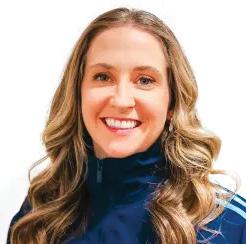
As an assistant coach for the UW–Madison women’s volleyball team, Annemarie Hickey (BA ’14, MS ’25) has seen firsthand how data is revolutionizing sports performance, team strategies, and organizational success. Seeking a competitive edge on the court—and beyond—she enrolled in the MSDIA program in 2023.
“The program uniquely blends technical skills with business insight, equipping me to incorporate data analytics into my coaching and leadership roles effectively,” she says.
“The program has already improved my skills in analyzing performance metrics, interpreting complex datasets, and making more informed decisions for my teams. Going forward, I aim to use these abilities to enhance player performance, refine strategic planning, and contribute to the evolving relationship between sports and analytics in both collegiate and professional levels.”
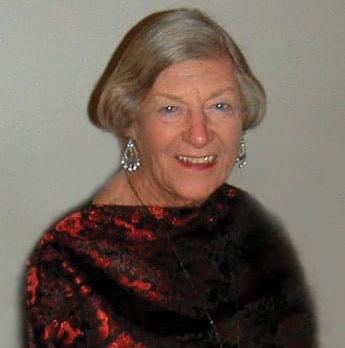
passed away in October 2024. Nelson established the Ruth L. Nelson Chair in Business at WSB in 2018 to express appreciation for her undergraduate business education. Nelson led a highly accomplished career, holding roles at Montgomery Ward, Time Inc., American Family Publishers, and Fifth Avenue Presbyterian Church. Later in life, she dedicated her time to a variety of volunteer activities, both across the globe and in her own backyard. Nelson will be remembered as a lifelong learner who always followed her own path.
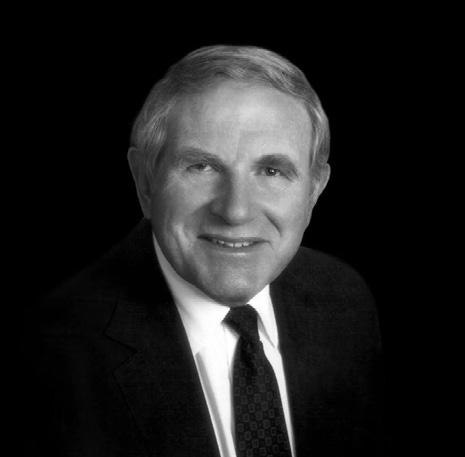
passed away in January 2025. Together with his late wife, Juli Plant Grainger (BPH ’48), he offered transformational support to WSB by donating to the construction and expansion of Grainger Hall, and supporting the Wisconsin Naming Partnership. The family also established an endowment to launch the Grainger Center for Supply Chain Management at WSB in the 1990s, the first of its kind in the nation. David W. Grainger will be remembered for his dedication to improving student experiences and generous support of UW–Madison.
actuary by profession, he says his training at UW–Madison allowed him to land his ideal job, blending business with math. After a brief stint in the Army, Carlson spent his career in actuarial work across four companies. In retirement, he enjoys volunteering as a tutor in local schools and spending time with his family (five children and 11 grandchildren).

Martin Feldman (BBA ’64) says that the four years he spent in Madison were the best years of his life! Later, he sent his two sons to UW–Madison, too! Feldman worked in magazine publishing most of his career and is now retired in Florida. He enjoys lots of travel and wonderful experiences, especially with his three grandchildren. He’s still active in retirement with a community theater group, where he and his wife handle ticket sales and accounting.
anniversary of managing the Midwest office of Fairfield Capital Group, LLC, a firm which consults with middle-market businesses who are interested in raising capital for equipment leasing purposes.

Jeffrey “Jeff” Alan Rouze (BBA ’74, MS ’77) was born in 1952 and passed away in 2024. At WSB, he studied real estate under the late James A. Graaskamp (PhD ’65)

Willard Young (BBA ’49) turned 100 years old in November 2024.
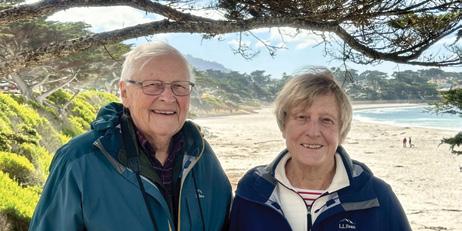
More Class Notes are featured in the digital issue at business.wisc.edu/ update/spring-2025




Bruce Gilbert (BBA ’76) retired a few years ago after serving as general counsel to a large health care company and a couple of startups. He’s now reverted to his teenage years, playing a whole lot of baseball and winning a national championship with his team, the South Jersey Spikes. He also enjoys playing music with his group, Boo Rits & The Missing Years, which released a new album, “Another Fine Mess.”
David Nemschoff (BBA ’76) retired from the corporate world in 2019 after a more than 40-year career in banking and finance. He now holds a faculty position at Long Island University in its School for Professional Studies, where he lectures on history and foreign affairs. He is also the author of Israel at the Brink: The Yom Kippur War.
CONNECT WITH US



@wisconsinschoolofbusiness

@UWBusiness
David Rosen (BBA ’84) is happy to report all is well and share his recent promotion to chief growth officer with Wausau Coated Products.
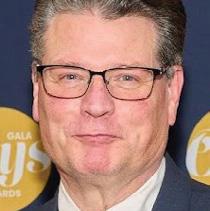
Karl Hansen (BBA ’86) started a new leadership role for Olymel in November 2024. His focus will be on fresh pork sales to the food service sector, retail establishments, and meat processors across the American market.
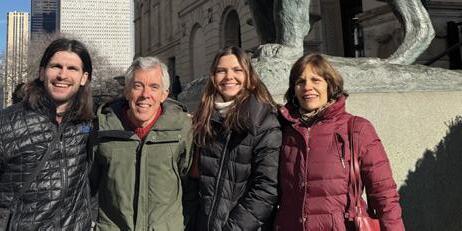
Cathy Mousseau (BBA ’86) began her career in real estate finance and earned an MBA at the University of Chicago. Later, her priorities shifted to raising children with her husband, Jeff, while volunteering in their community. Nonprofit work quickly became her passion, and Mousseau now serves as senior development officer for Cosley Zoo in Wheaton, Illinois. She’s grateful for fulfilling work,
loving family and friends, a great community, and many opportunities to learn and grow along the way.
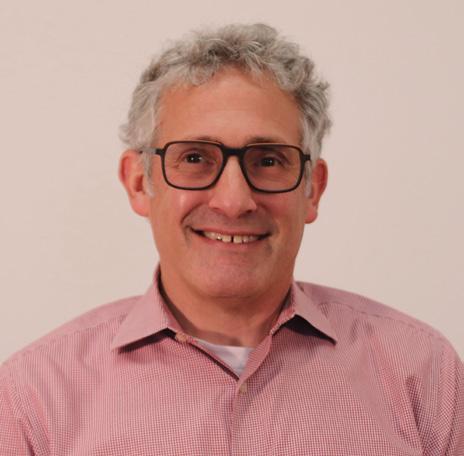
recently joined Huston Design, a marketing design firm helping brands transform complex information into straightforward, compelling visual designs and messaging for web, digital, and print media. Mintz returned to Madison after three years of self-imposed exile to the Upper Peninsula, where he enjoyed Lake Superior, hiking in the woods, and cross-country skiing.





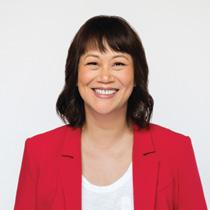
Rita Chen (MBA ’97) has embarked on a new adventure as an entrepreneur after over 25 years in marketing across several companies and organizations, including Hallmark, 3M, DreamWorks, the University of Chicago Booth School of Business, City Winery, and Choose Chicago. In 2023, she founded Rita Chen Consulting, where she helps organizations drive growth through strategic marketing, with a focus on thoughtful partnerships, branding, and audience engagement.
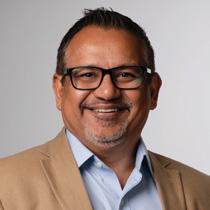
Tushar Mutreja (MBA ’97) is the global chief executive officer and co-founder of SaaSWorx. ai, a fast-growing Salesforce, NetSuite, and Snowflake consulting firm. He brings over 11 years of experience from Salesforce, where he led strategic alliances and exceeded growth targets. At SaaSWorx. ai, Mutreja is driving global expansion and innovation to help clients unlock the power of AI and data.
Dave Pausch (BA ’97, MA ’03) has begun pursuing his MFA in theater directing and acting at Randolph College in Lynchburg, Virginia.
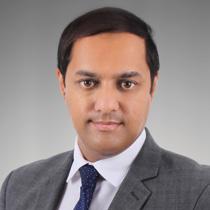
innovative approaches using digital platforms for the total rewards program and work and career architecture. In May 2018, he was included in Forbes’ “Top 50 Indian Executives in the Arab World” list. Gandhi is based in the firm’s Dubai office.
Continued on next page ALUMNI
Vijay Gandhi (BBA ’98) has been a regional director for Europe, Middle East, and Africa at Korn Ferry Digital since 2001. The business unit is leading

published the second book in her women’s wellness series, The WellnessEvolved Woman, which earned a Mom’s Choice Gold Award and became an Amazon Best Seller in six categories. The book explores using wellness as a foundation and embracing authenticity while evolving personally and professionally. Vokoun is also the founder and chief executive officer of Passion Fit.
Tom Zuern (BBA ’00, MAcc ’01) is president of Zuern Building Products & Design Center, which acquired three businesses in 2024. With 260 team members across 10 Wisconsin locations, the company supplies lumber and building materials to contractors, builders, homeowners, and countless Badger alumni!
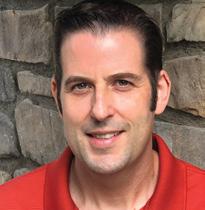
Adam Key (BBA ’01) leads content and advertising marketing campaigns for Amazon Fire TV. He created the Stream it Forward brand sponsorship program, which aligns brand advertisers with streaming content. In this program, Amazon donates to a brand’s preferred charity for every hour streamed. The program has contributed $3 million in total donations across more than 20 unique charities.
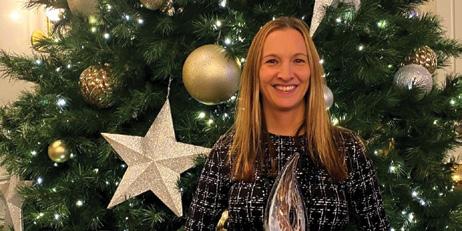
Michelle Goetsch (BBA ’03, MAcc ’04) was recognized as one of Milwaukee Business Journal’s “2024 C-Suite Stars.” Goetsch is the chief financial officer of Girl Scouts of Wisconsin Southeast.
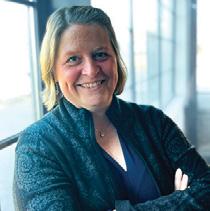
Dani Luckett (MA ’04) joined The Nature Conservancy (TNC) as senior associate
development director for the Wisconsin chapter in February 2025. She’s excited to champion TNC’s critical mission to conserve the lands and waters on which all life depends and unite people in tackling today’s biggest conservation challenges. She also serves on the board of the Association of Fundraising Professionals Greater Madison Chapter.
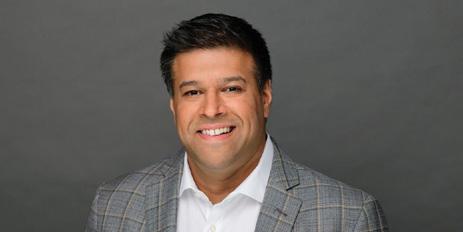
Yousuf Hussain (BBA ’07) is pleased to have accepted a role as the next divisional chief financial officer of Marcus Hotels and Resorts, a division of Marcus Corporation based in downtown Milwaukee. After 18 years working in San Francisco and Chicago, he is excited to get back to Wisconsin, and is always happy to meet up with fellow Badgers in the Milwaukee area. He lives in Lake Forest, Illinois, with his wife and two children.

Katie Jarek (BBA ’07) crossed the English Channel with her swim team in July 2024! Swimming in frigid waters and surrounded by jellyfish, Jarek and her team completed the journey in about 19 hours.



@wisconsinschoolofbusiness
@UWBusiness CONNECT WITH US

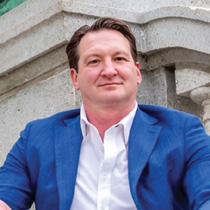
Nathan Plumb (MBA ’10) was promoted to coportfolio manager and president of the Plumb Mutual Funds.
Emily Bremer (BS ’11, MBA ’19) is currently the senior director of marketing for the Milwaukee Brewers. She’s been in this role since 2024!
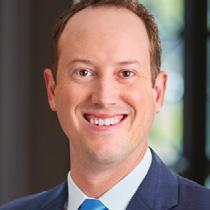
Brian Copsey (BBA ’11, MAcc ’12) recently joined Oxford Financial Group as chief financial officer. The firm is one of the largest independent registered investment advisors in the country, with oversight of more than $30 billion in assets under advisement.
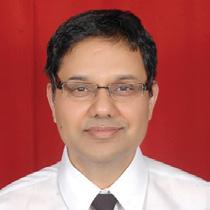
Vivek M. Deshpande (MBA ’11) received the Rex Karmaveer Global Fellowship and Karmaveer Chakra Award in November 2024. The Karmaveer Chakra Award is a global civilian honor that recognizes unwavering commitment to
transforming cancer care, ensuring that no patient is left behind due to geographic or economic barriers.
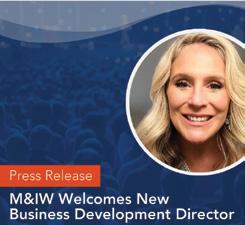
Kelly Peiffer (MBA ’11) has accepted the role of director of business development at Meetings & Incentives Worldwide, Inc., where she will help expand the company’s presence in largescale events like conferences and trade shows. Peiffer says she’s excited to join a women-owned organization with such a wellestablished reputation.
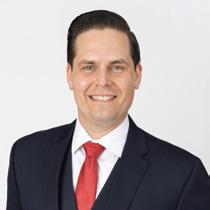
Bryan Brunken (BS ’12, MBA ’20) is excited to announce that he’s earned his professional designation as a certified financial planner! Brunken is a private wealth service advisor with Heckmann Financial in Middleton, Wisconsin. He works with clients across the U.S. in wealth management, specializing in financial independence planning for business owners, high earners, and those with significant assets.

Joey Baer (BBA ’13) and Lindsay Baer (BA ’13) reside in the Madison area with their two children. Lindsay is a paralegal for the state of Wisconsin and Joey has had a financial planning practice with Edward Jones since 2014. They take their children to many UW–Madison events,



To submit your own Class Note, visit go.wisc.edu/wsb-class-notes
hoping they’ll be next-generation Badgers!
Sean Park (BBA ’13, MAcc ’14) joined Rokt as head of tax in December 2024. Rokt is a global leader in marketing technology that helps e-commerce brands maximize customer engagement and unlock new revenue opportunities. With over 10 years of experience in technology, finance, and fintech, Park is excited to take on this next chapter, where he will continue his journey of strategic leadership and innovation in the tax space.
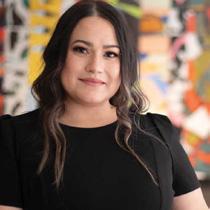
Sarah SosaAcevedo (MBA ’16) has been named the new executive director of Wenham Museum by its board of trustees. Wenham Museum celebrated its 100th anniversary in 2023. Sosa-Acevedo now oversees all operations for the hands-on, family-friendly history museum that stewards a diverse collection of approximately 60,000 objects and is known for its educational and community programming.
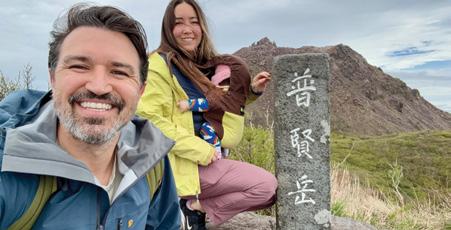
Bryan Skwirut (MBA ’19) and his wife welcomed their first child in December 2023. In April 2024, they traveled to Japan to introduce her to her 100-year-old great-grandmother. After a rewarding journey at TruStage, where he led major merger and acquisition deals, he is transitioning to a new
role as director of enterprise transformation with New Era Technology.
More Class Notes are featured in the digital issue at business.wisc.edu/ update/spring-2025






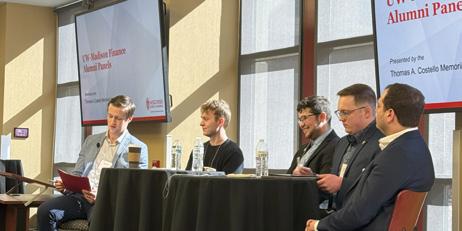
Patrick Sweeney (BBA ’20) is honored to receive the Thomas A. Costello Memorial Alumni Award from Badgers in Finance, named in memory of the late Tommy Costello (BBA ’19). This award includes a cash stipend to facilitate a campus visit, encouraging recipients to engage with current students to support their career exploration. Sweeney used his award for a group visit, rallying 12 fellow alumni to join him in hosting five events over two and a half days. He notes that Costello valued networking, making it especially meaningful to build connections in his honor.
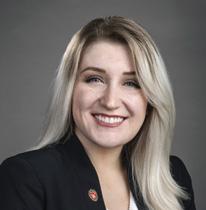
Amelia Kittson (MBA ’21) has been promoted to president at KIE Supply Corporation. As a thirdgeneration owner and operator, she is thrilled to continue her
family’s 70-year legacy as a wholesale distributor in the Pacific Northwest. Kittson has spent the past 15 years in various positions at KIE Supply and is grateful to the Grainger Center for Supply Chain Management and the Wisconsin MBA program for helping her build the skills that she uses daily in her career.
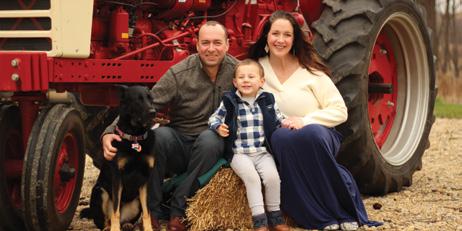
Jared Siebenaler (MBA ’21) is now running his company, Stoic Canine, LLC, full time and serving Dane County as a dog trainer. This switch has allowed
for increased flexibility to take care of his growing family and serve his community as a volunteer firefighter for Mount Horeb, Wisconsin.

Kim Ulaky (MBA ’21) recently joined Arrowhead Pharmaceuticals, leading a team of process engineers to launch the company’s new site in Verona, Wisconsin. She also married her partner, Drew, on a beautiful fall day in October 2024 in Lake George, New York. ◀


“Big milestone for Snow Scholars! We’re thrilled to share that Snow Scholars, founded in October 2022, landed a deal with Mark Cuban on Shark Tank ABC! Catch our episode on Hulu or YouTube if you missed the broadcast! “
JAKE PIEKARSKI (BBA ’24)
The spring semester at WSB offered countless opportunities for Business Badgers to build their business acumen, cultivate real-world skills, and form authentic connections—both in and out of the classroom. From local community-building activities in WSB’s own backyard to global excursions that provide eye-opening perspectives, students had a successful spring of new experiences, fresh thinking, and once-in-a-lifetime opportunities.

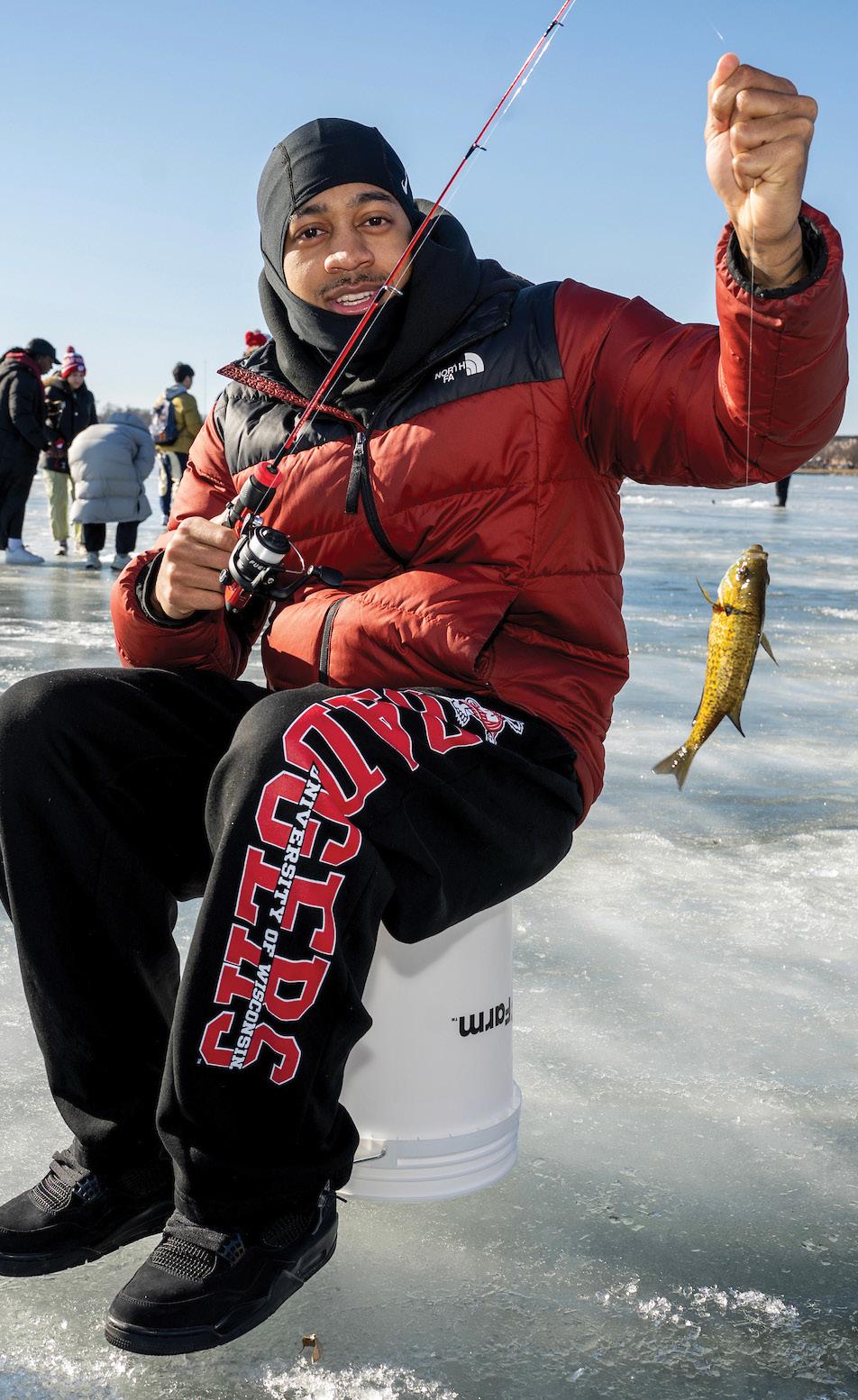
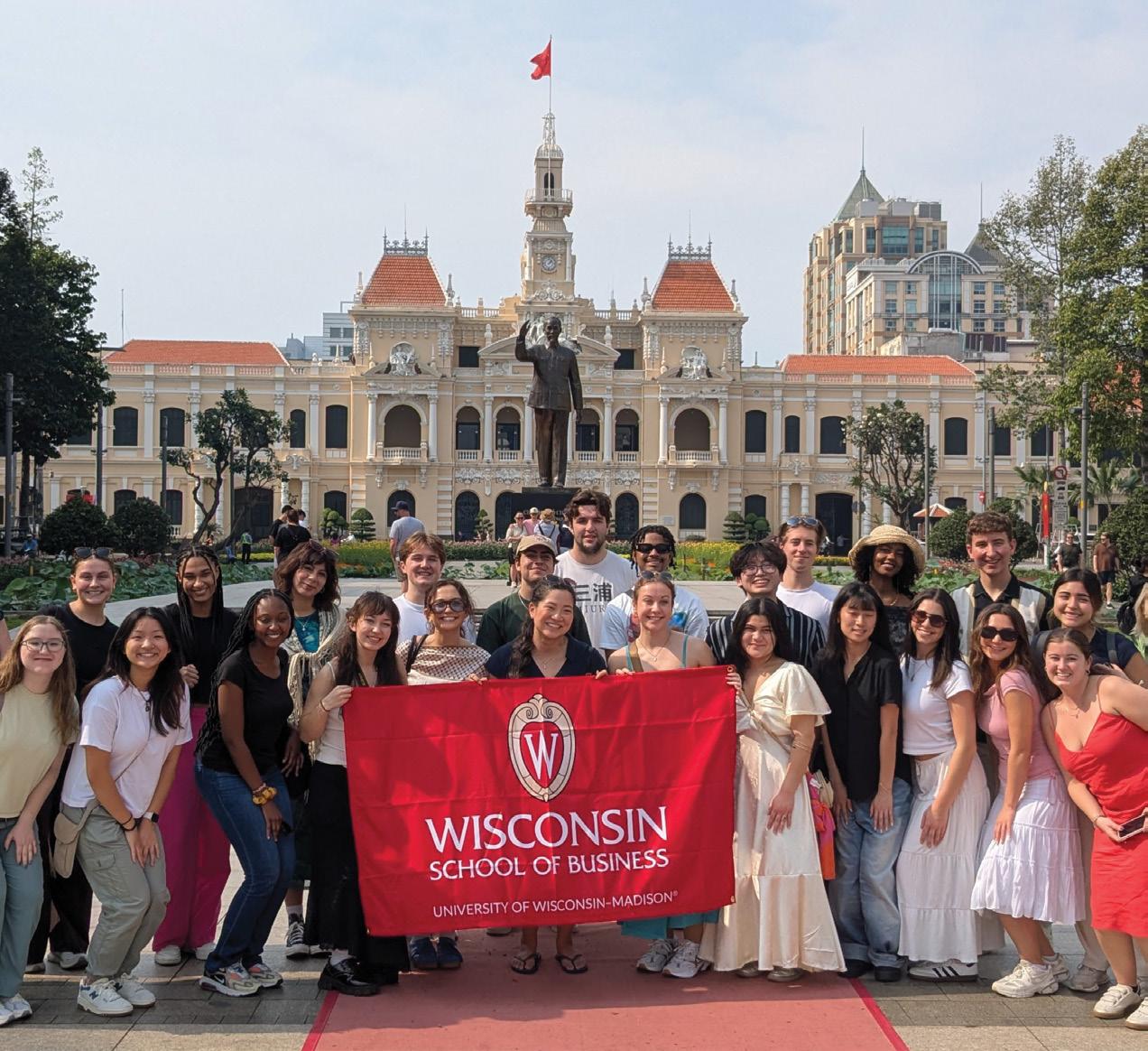
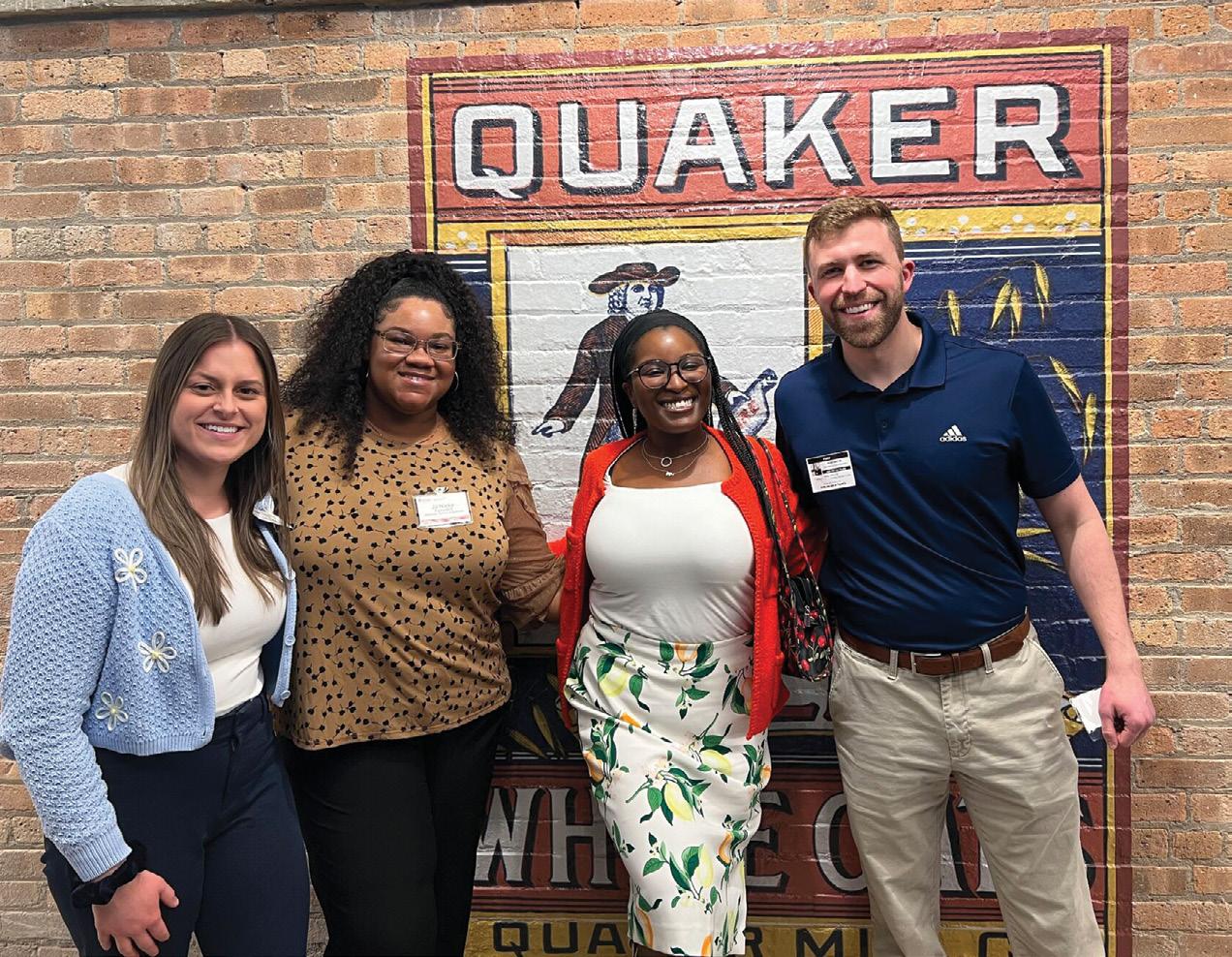
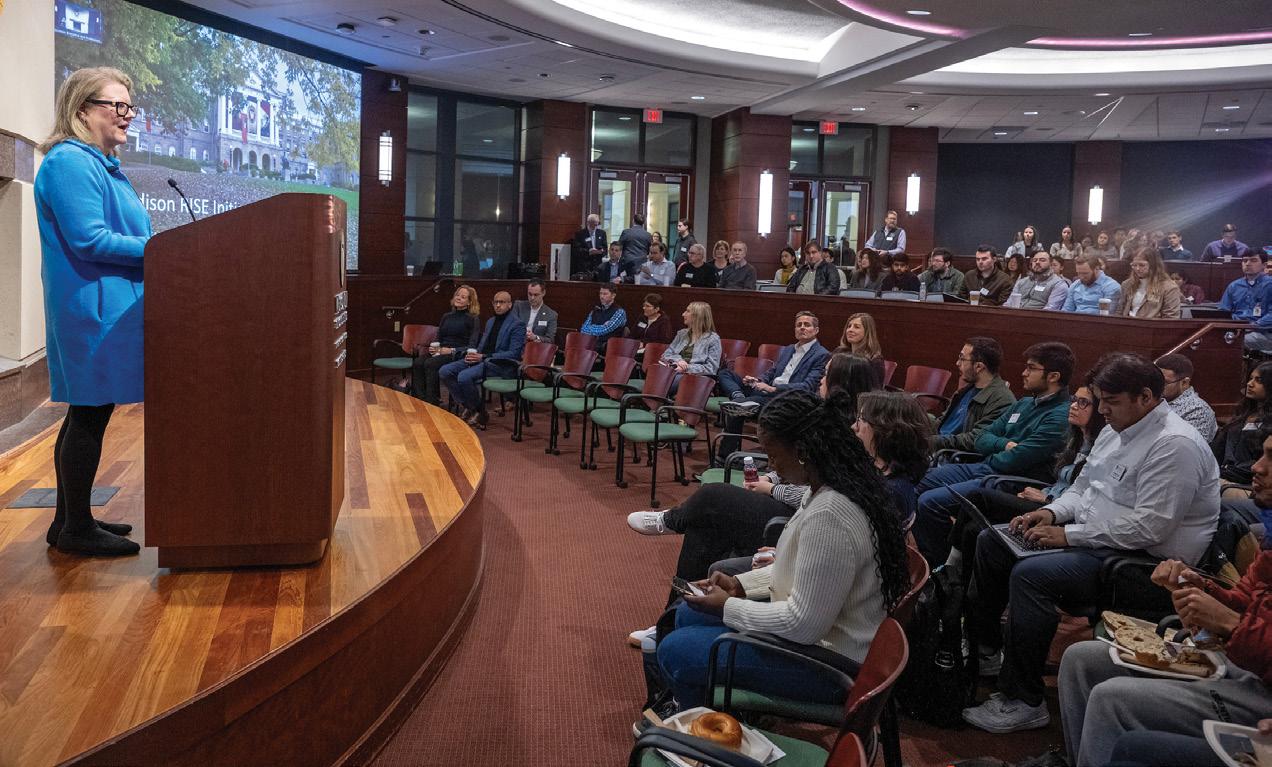
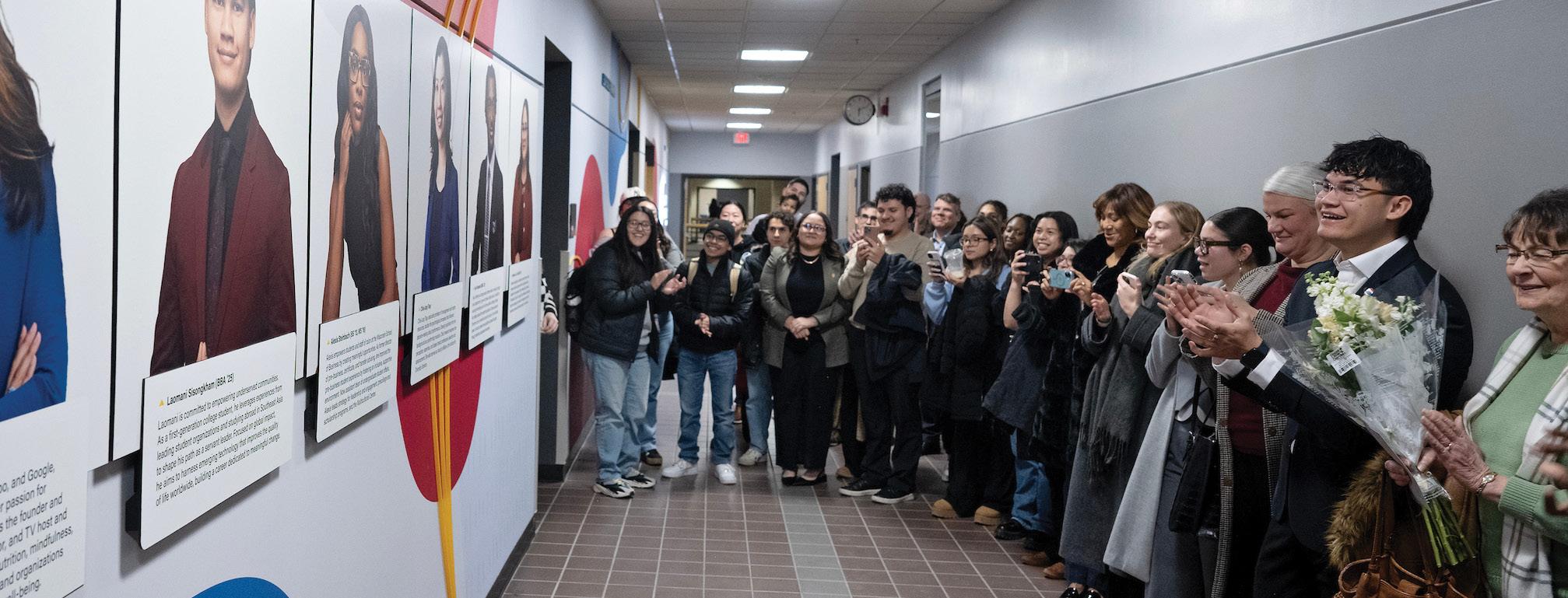
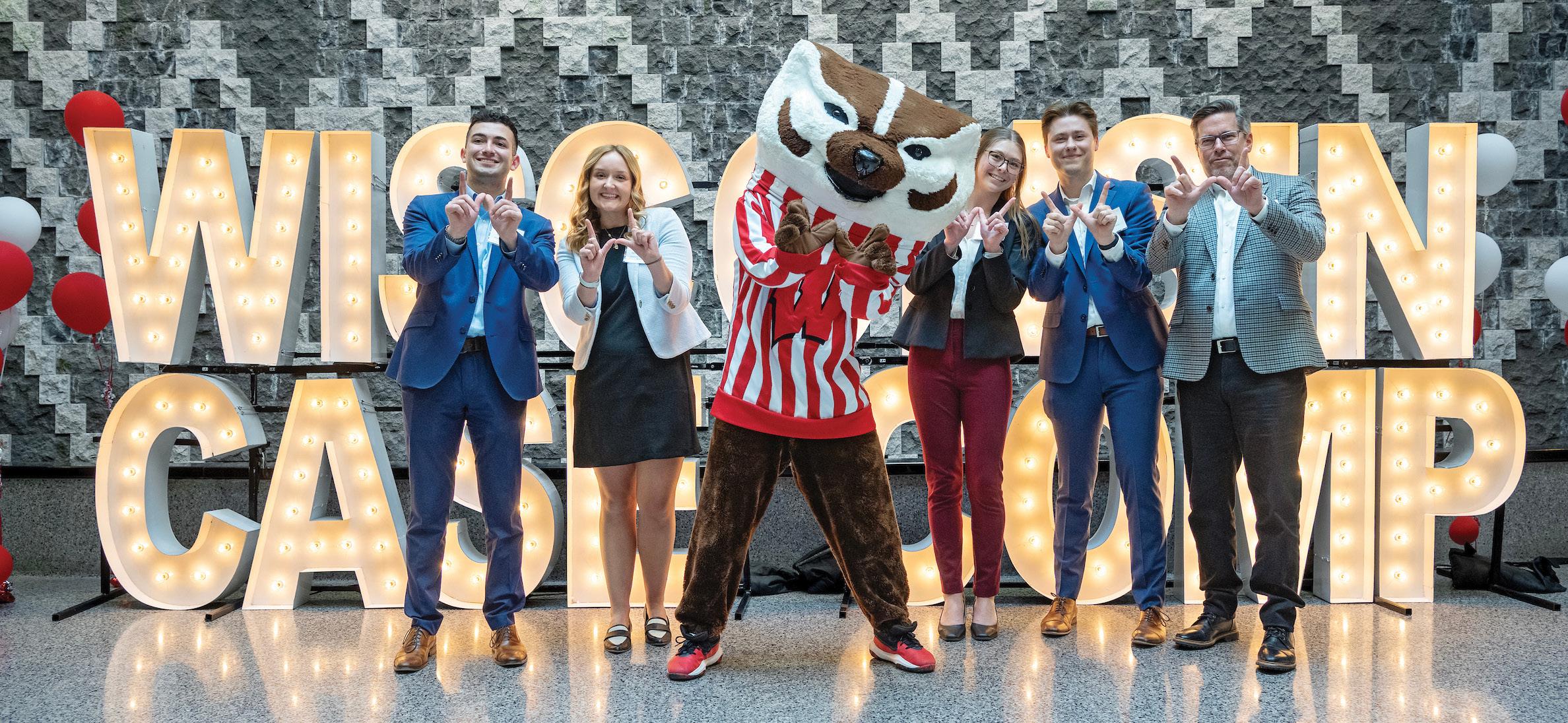
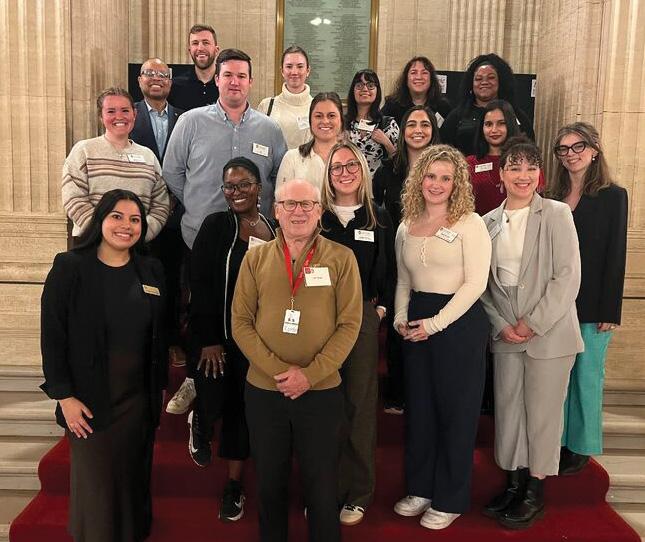
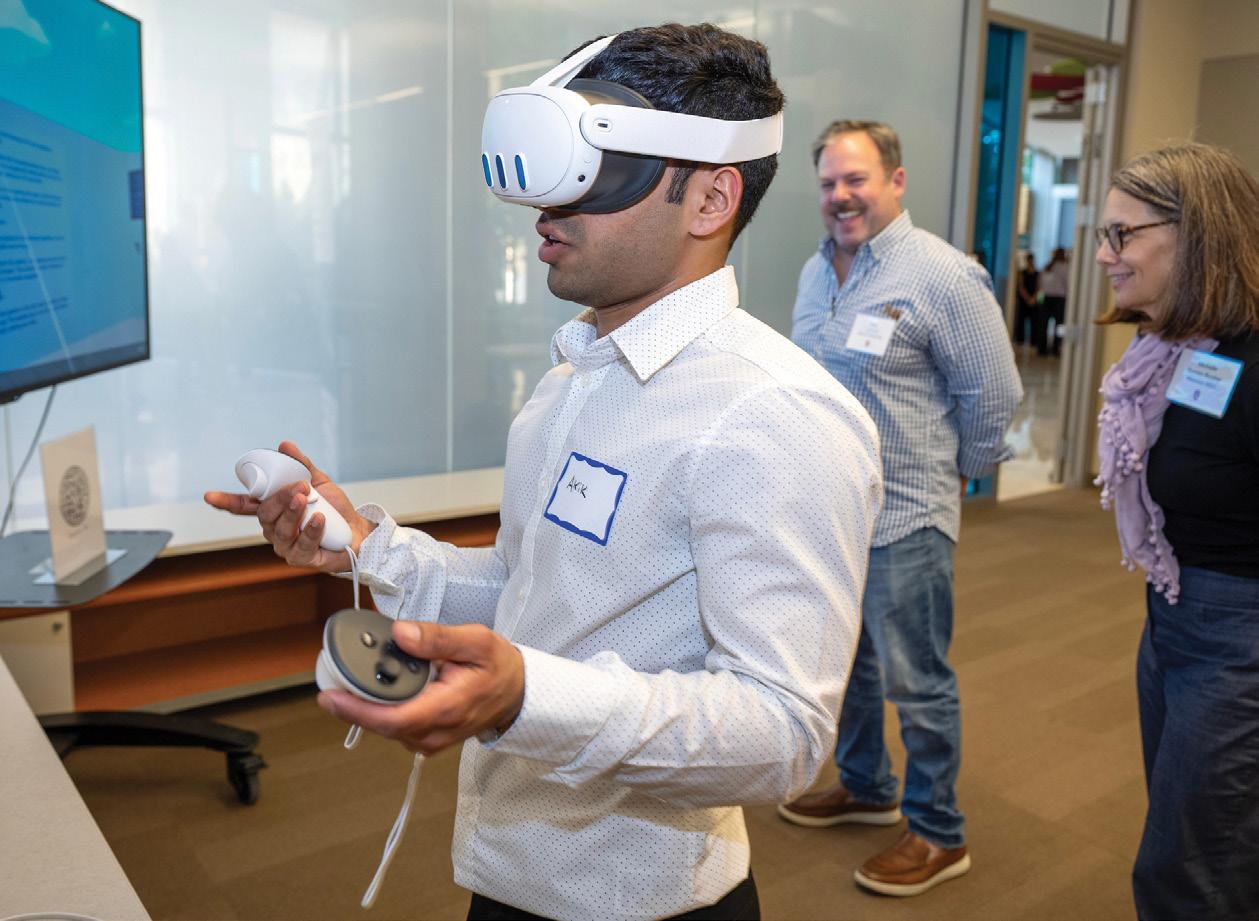
During an open
students

